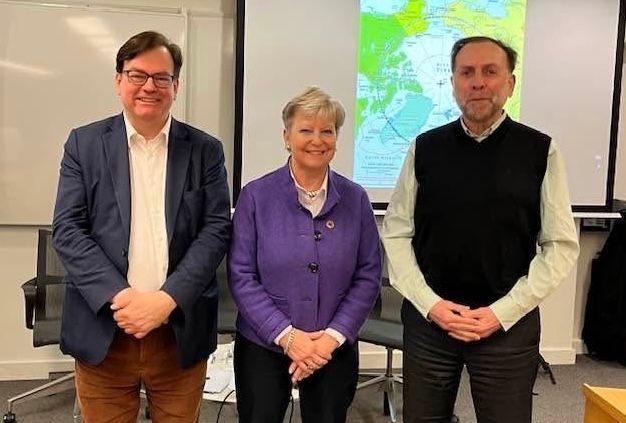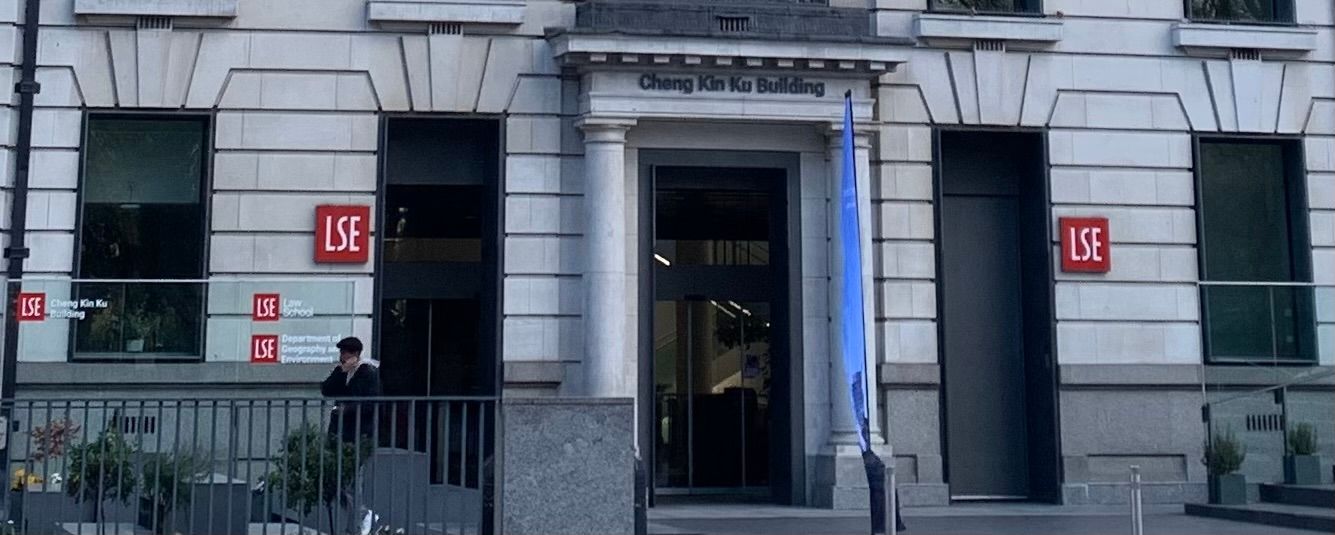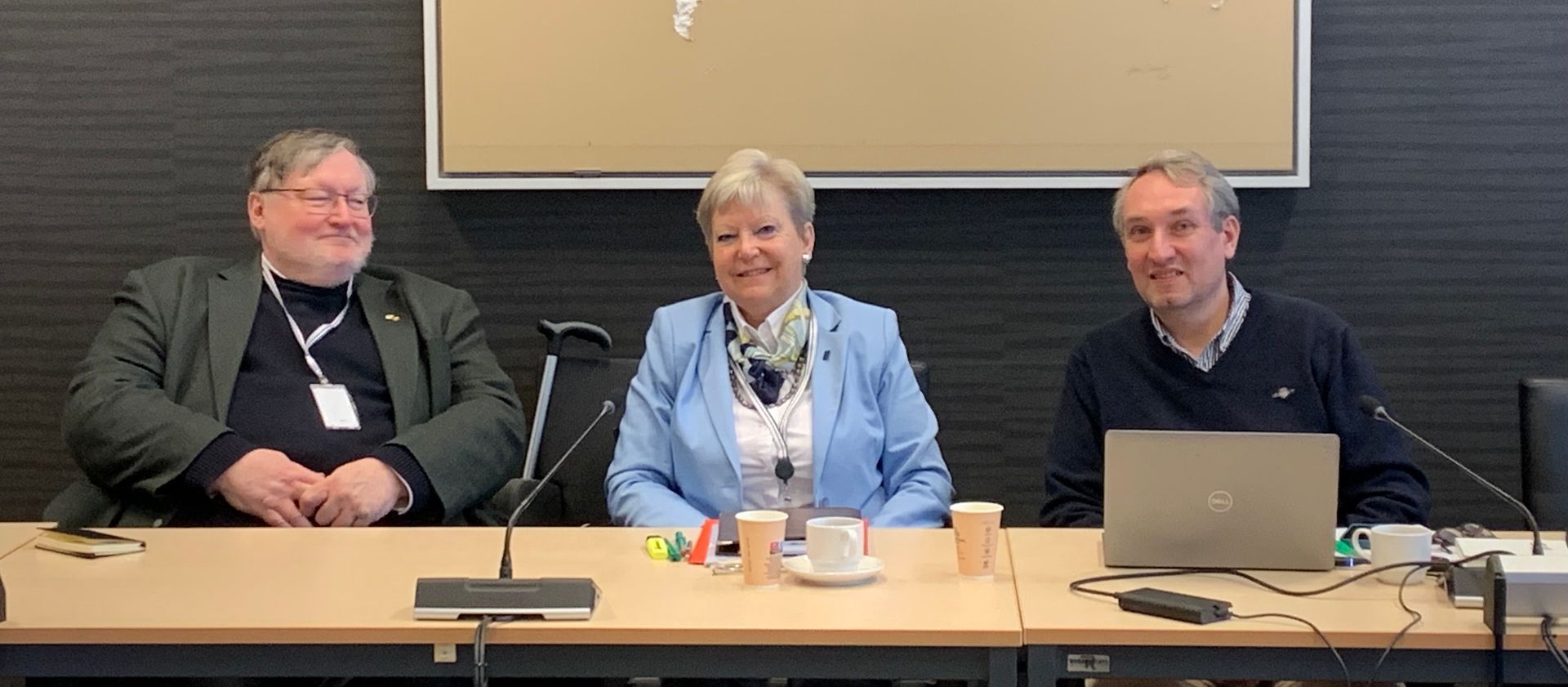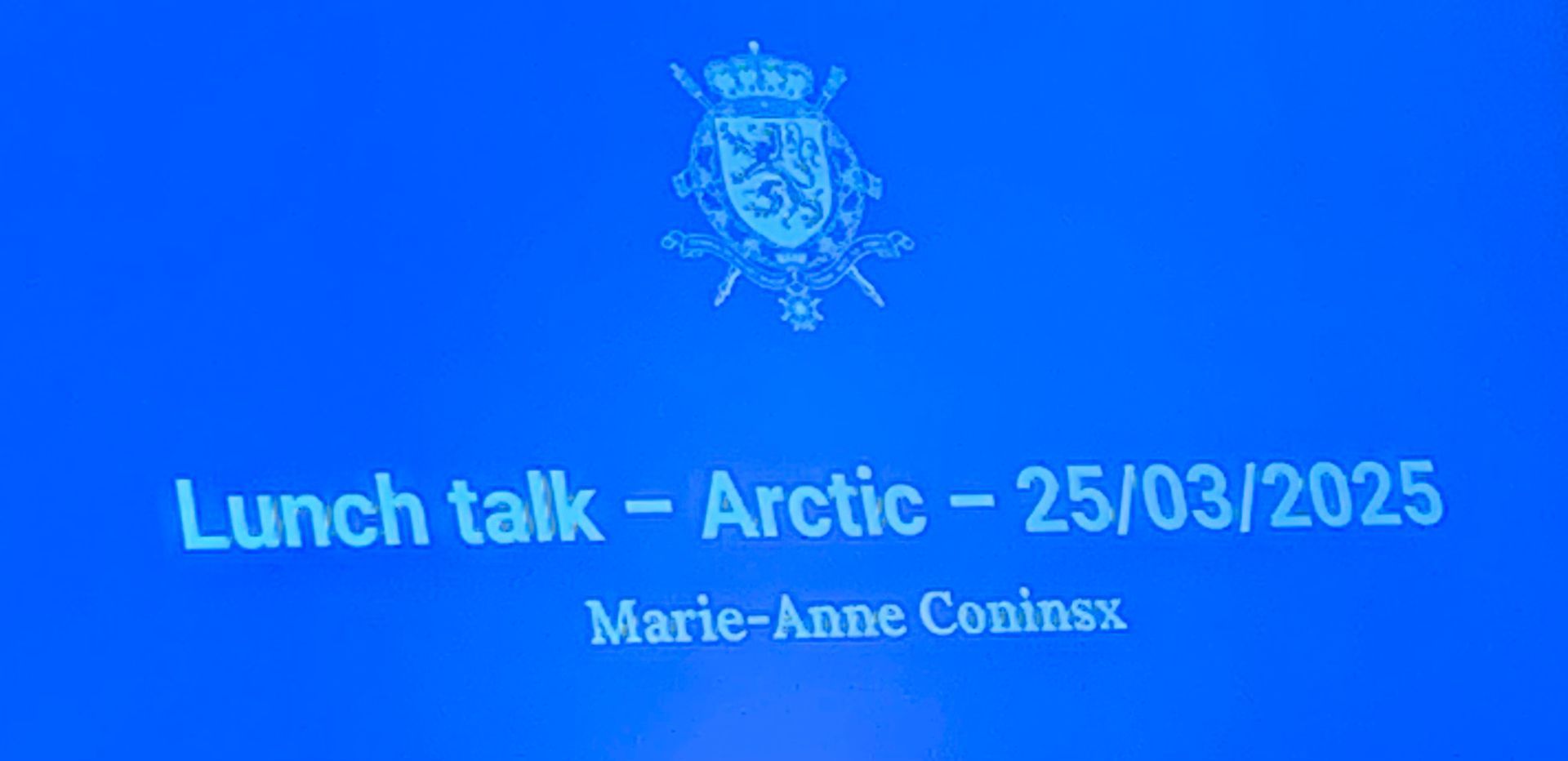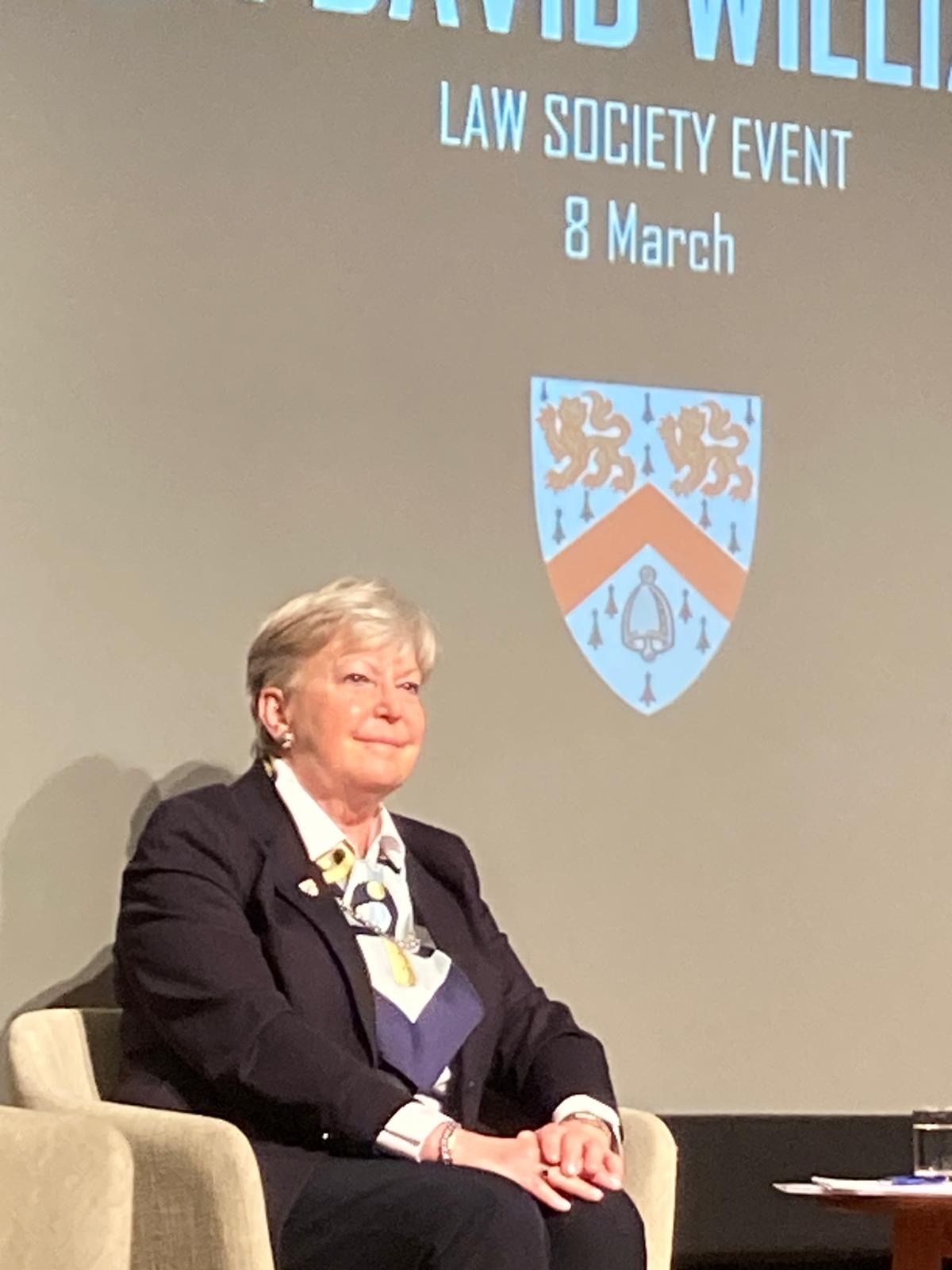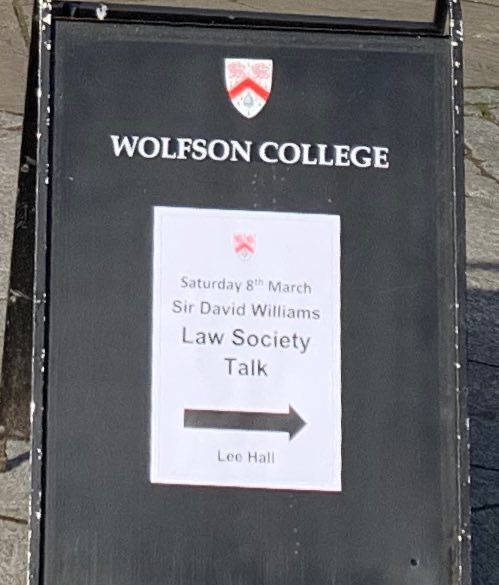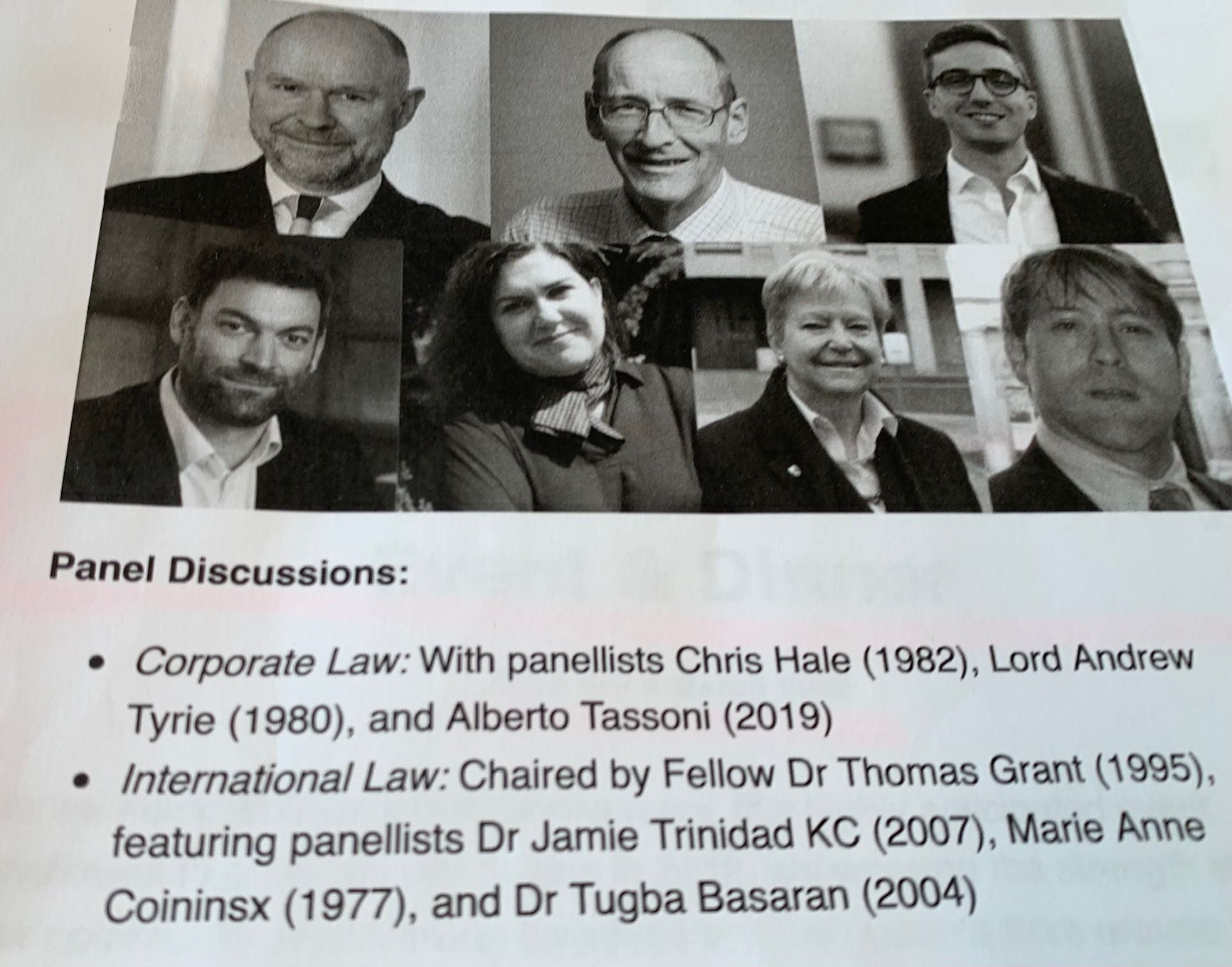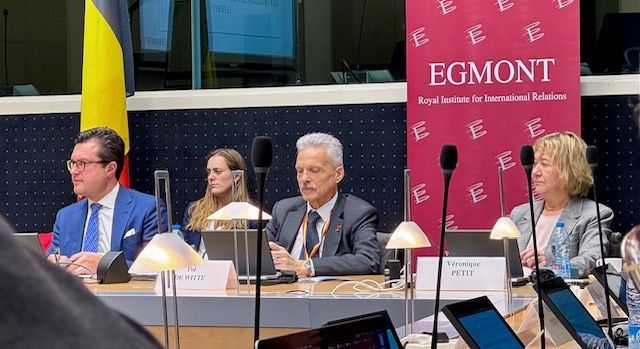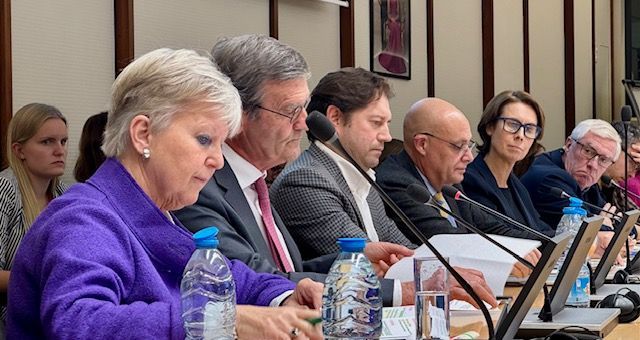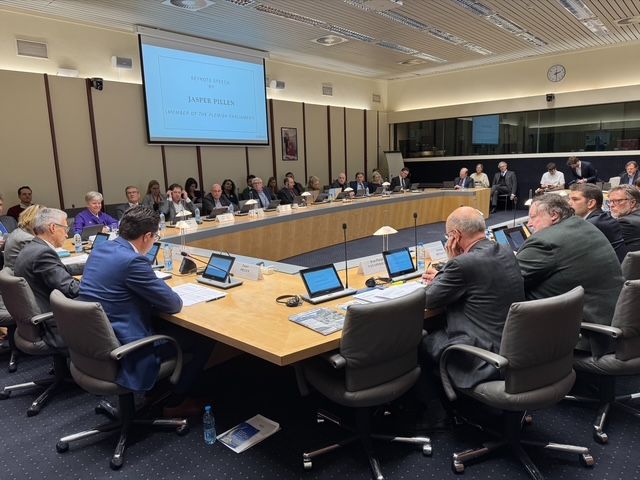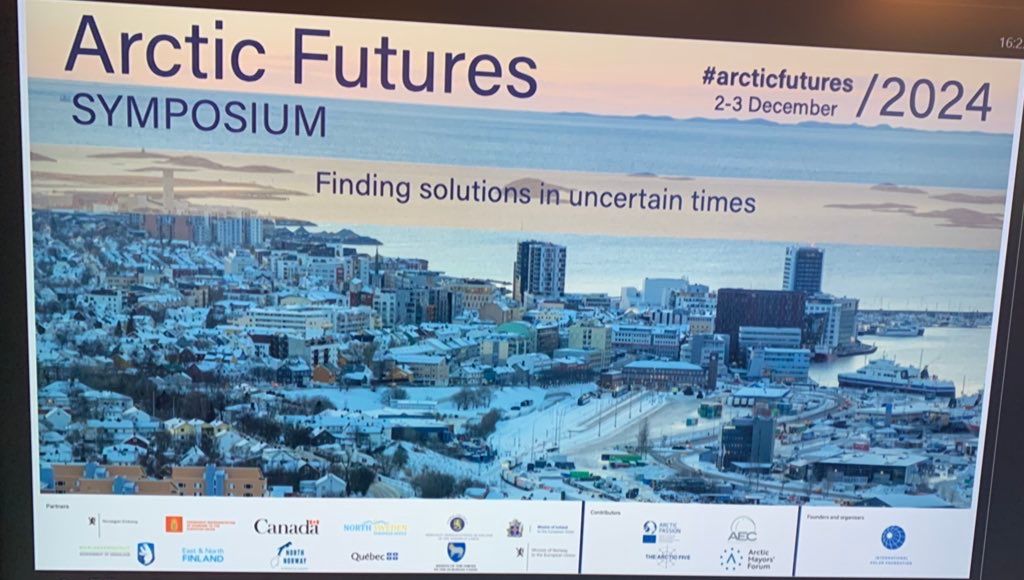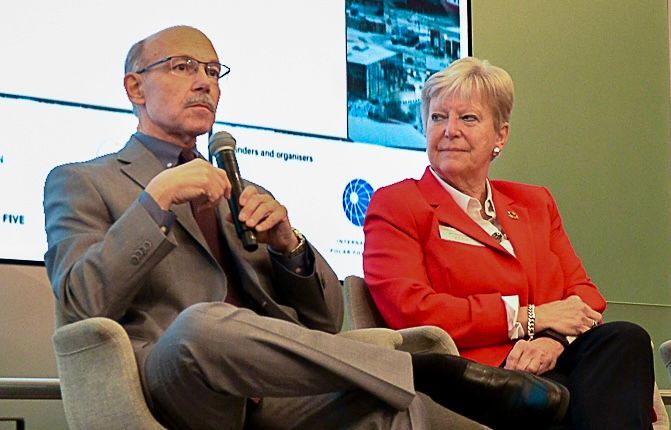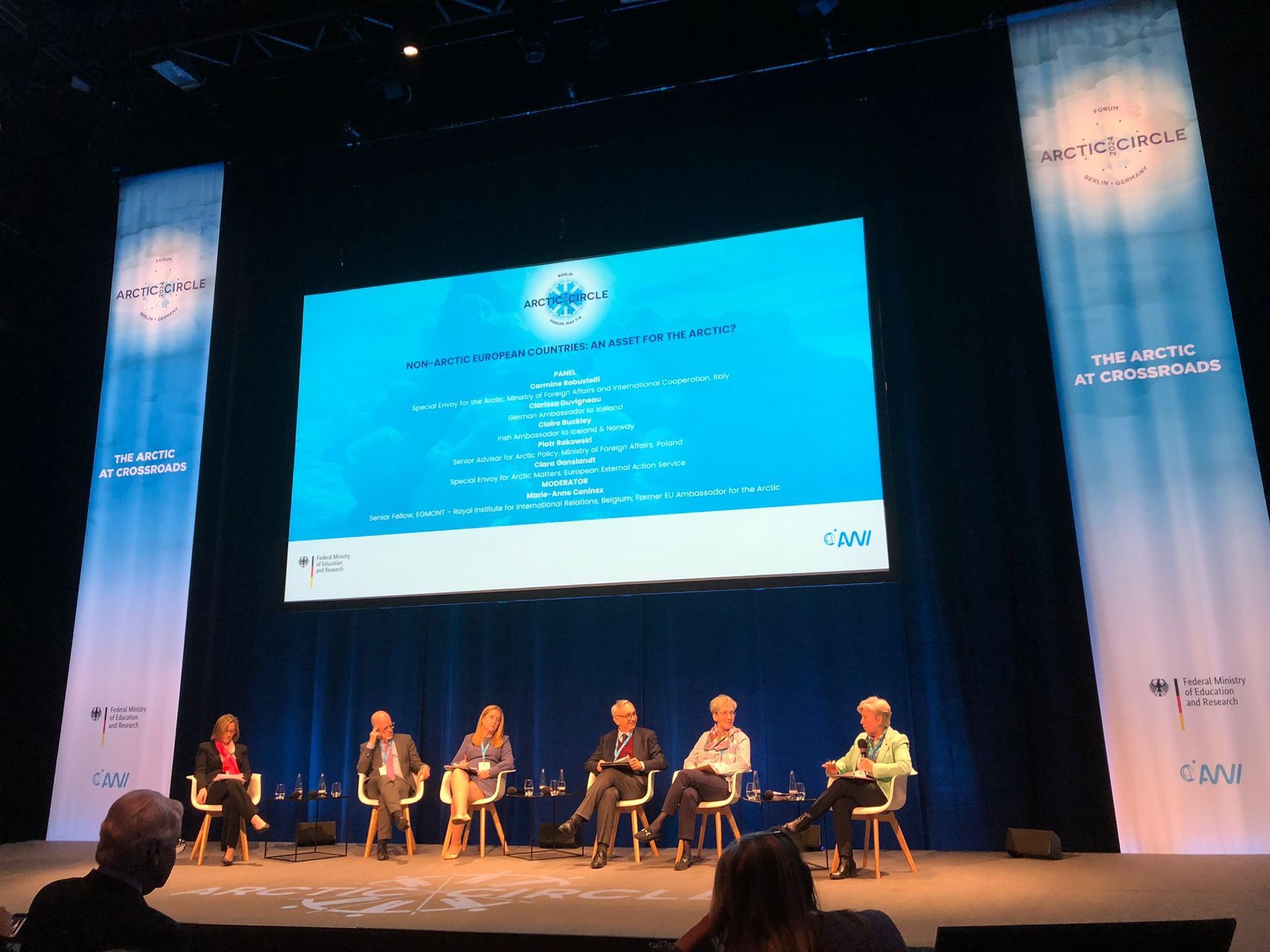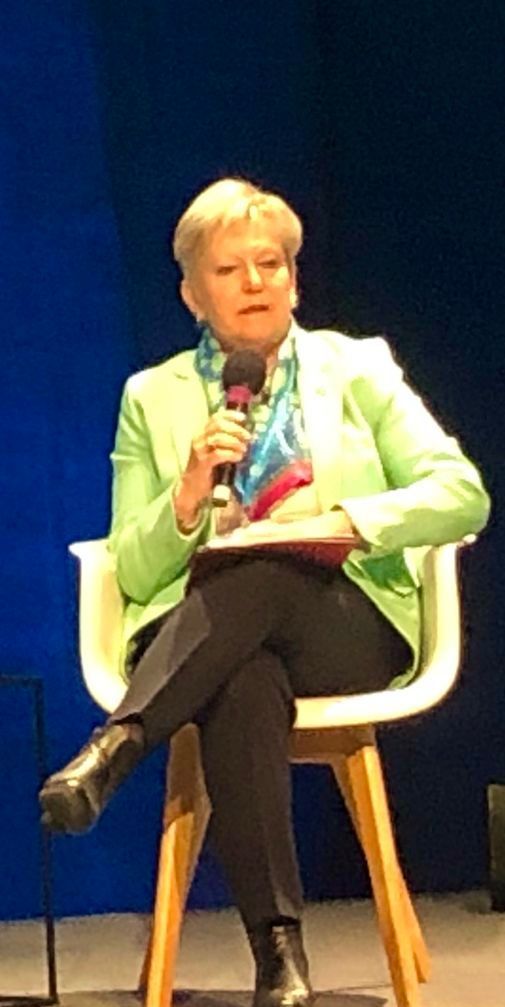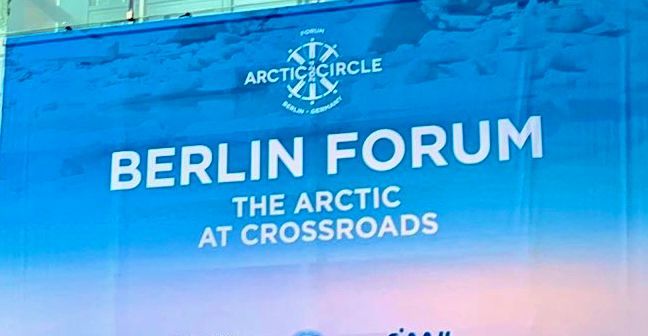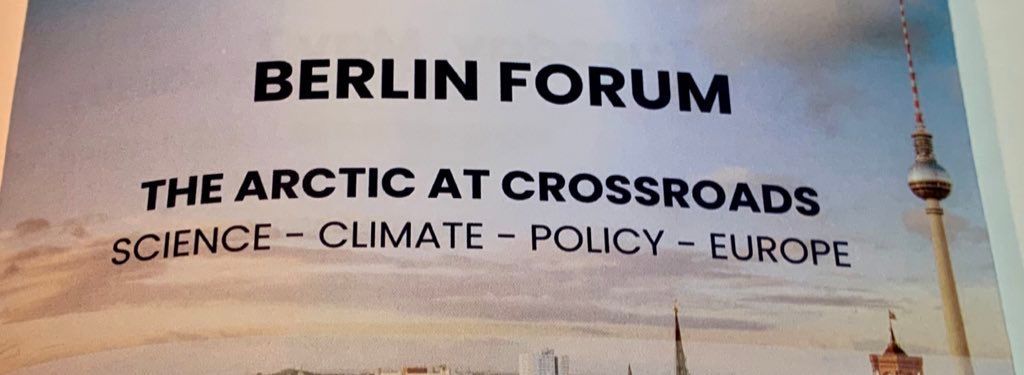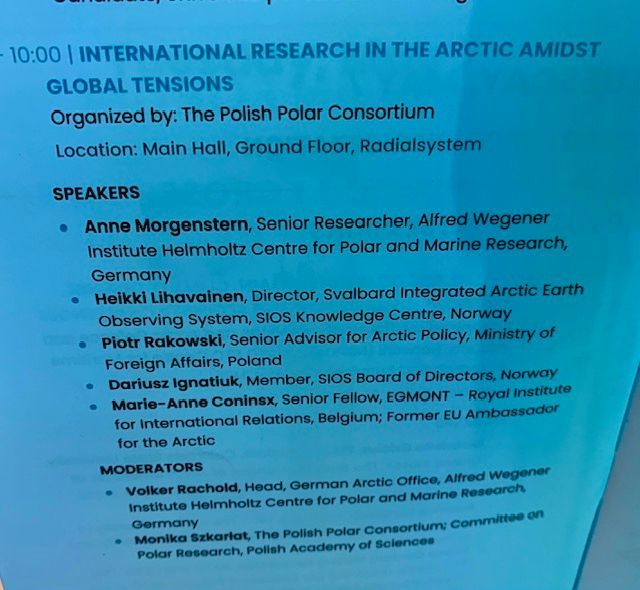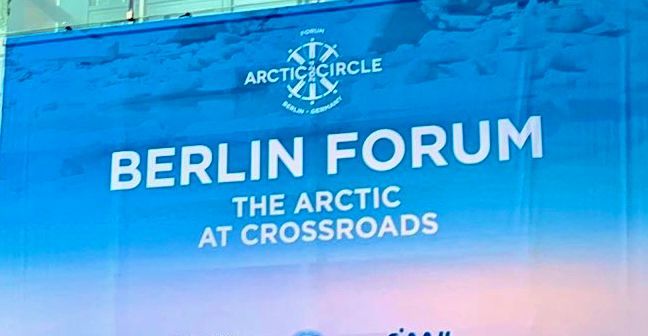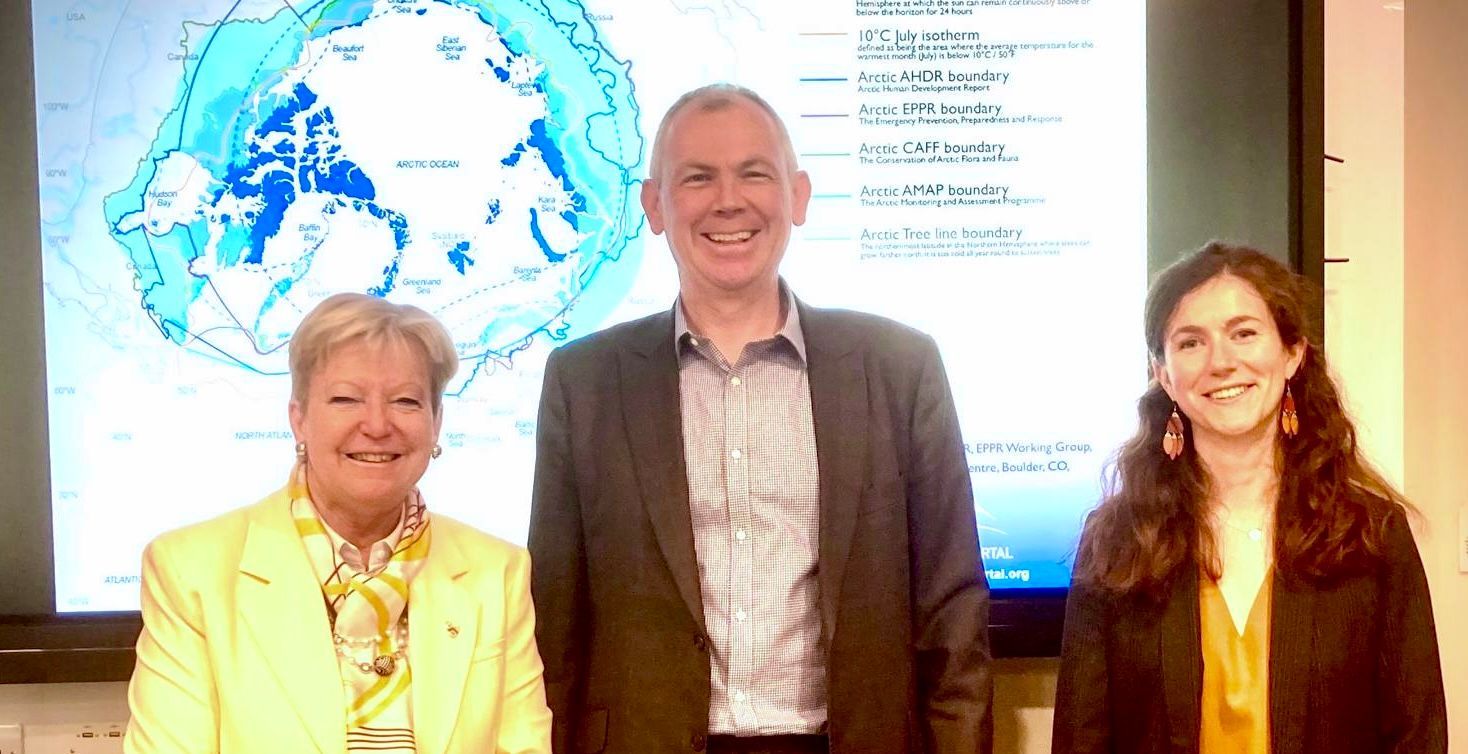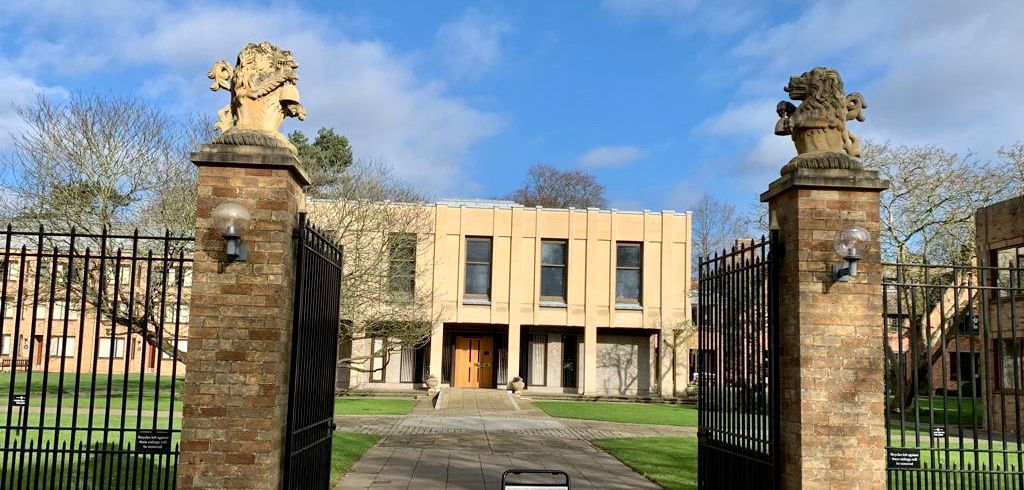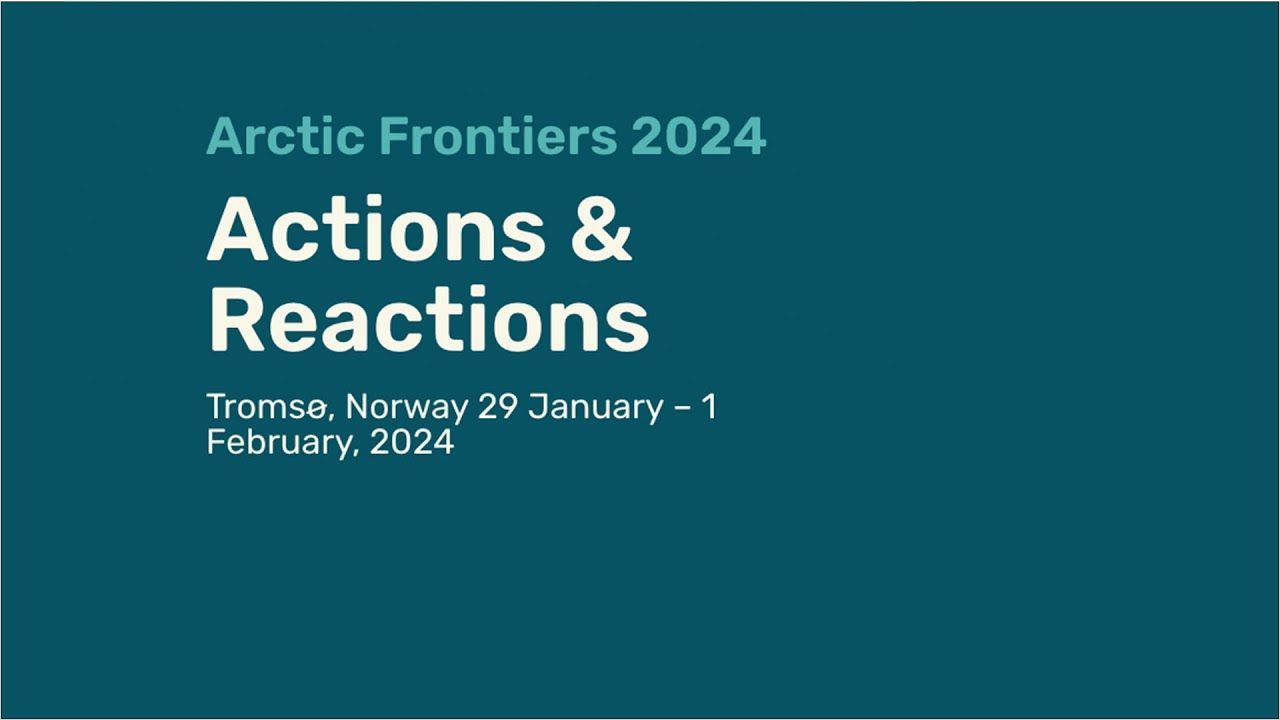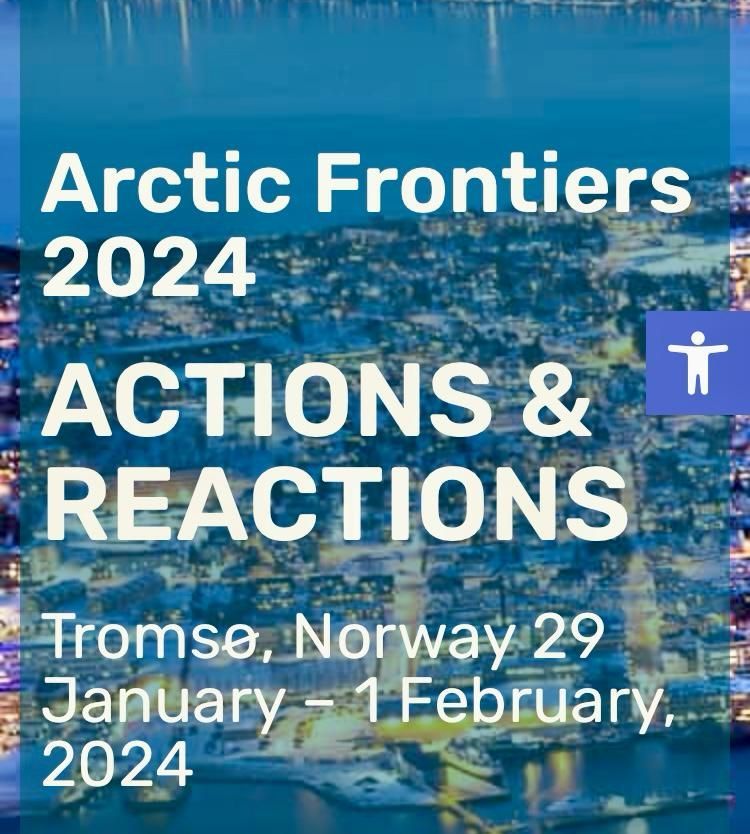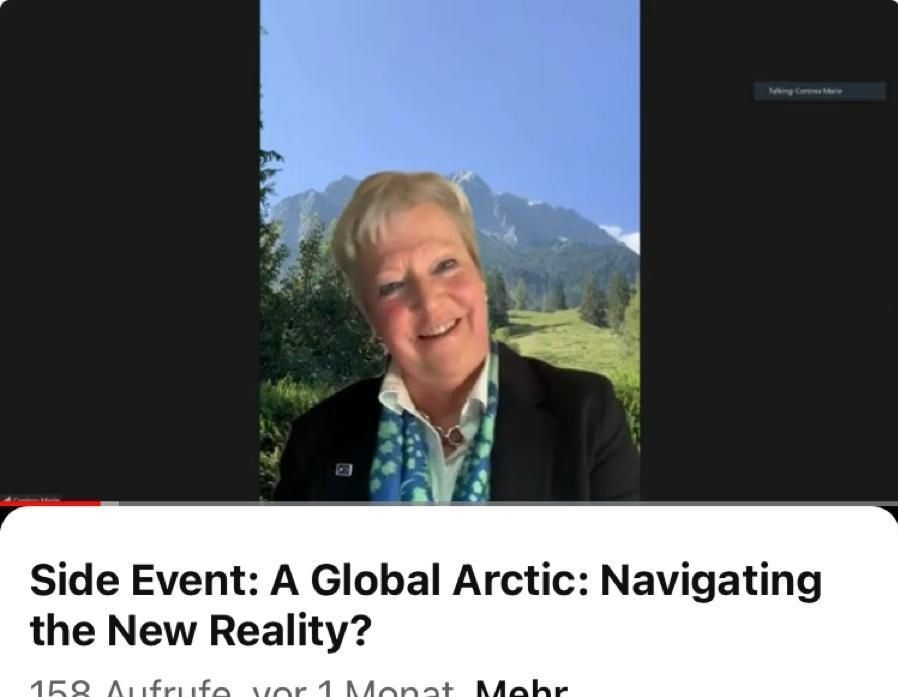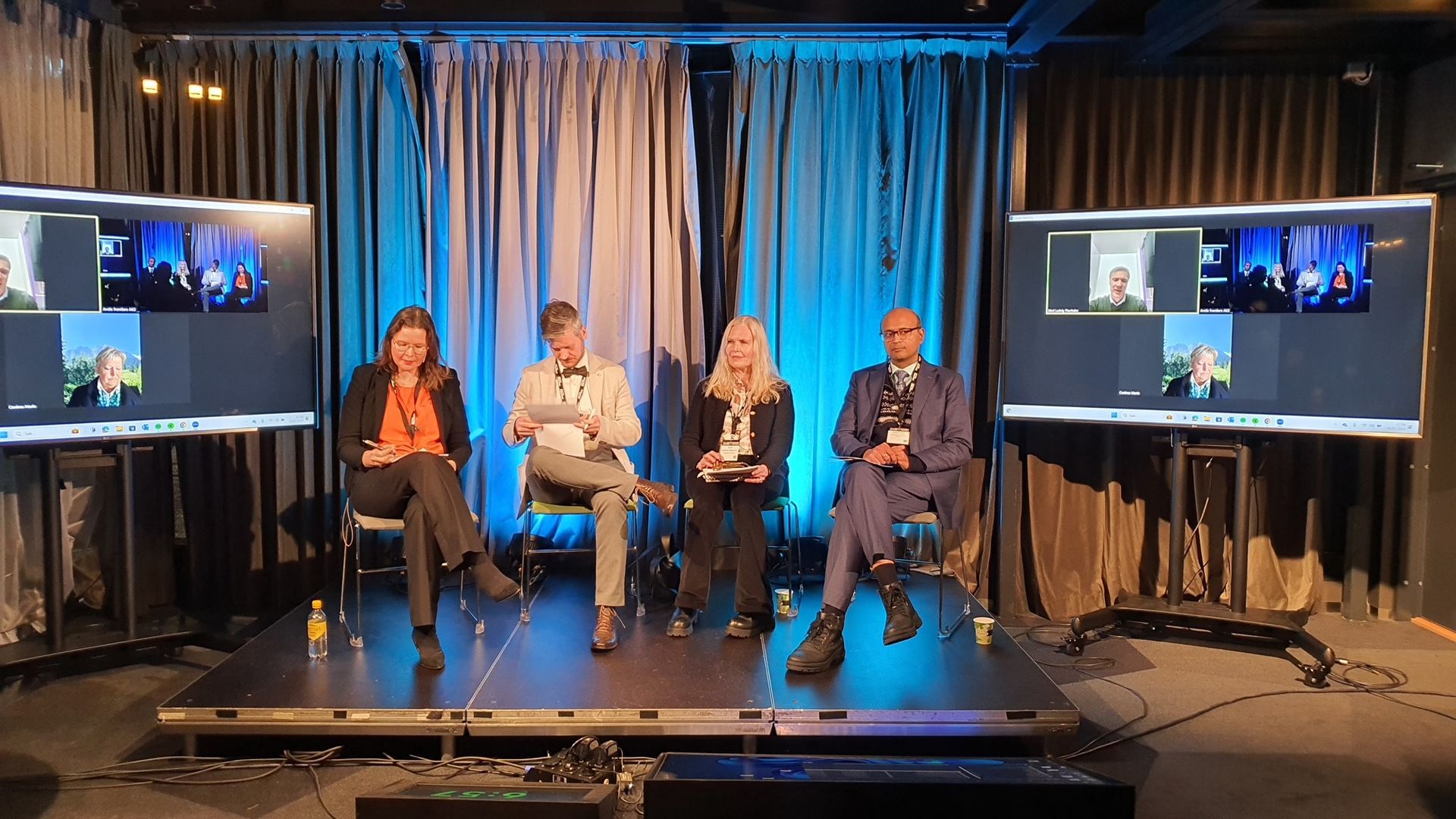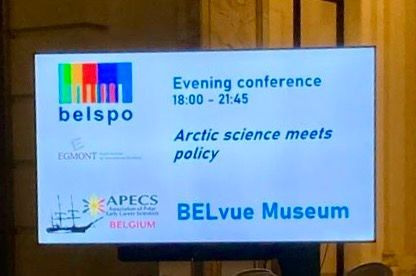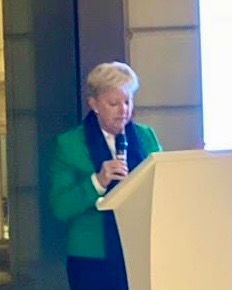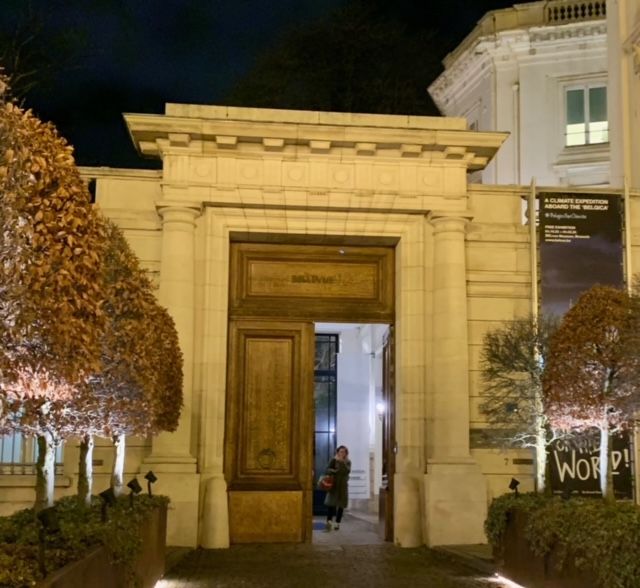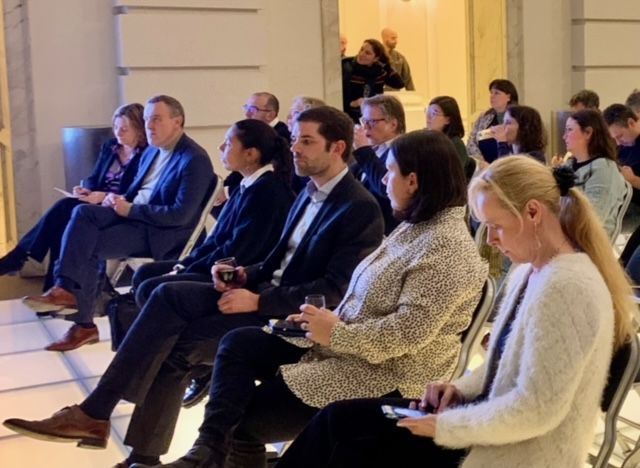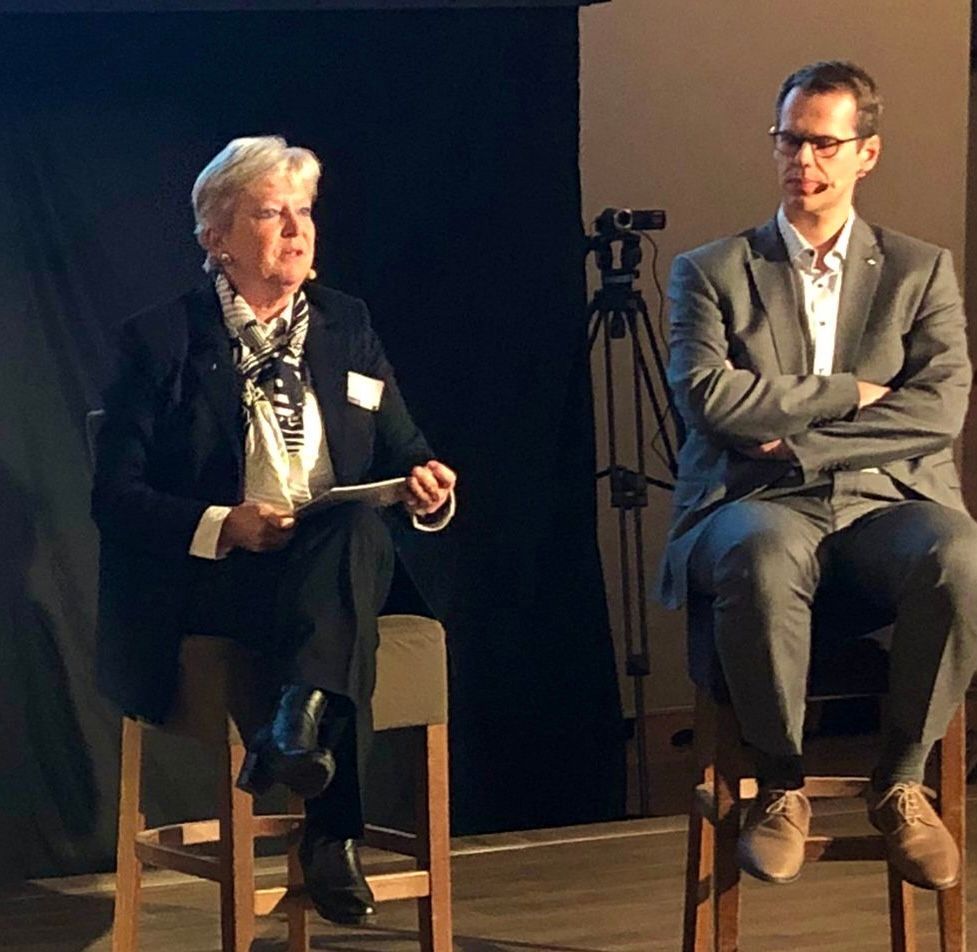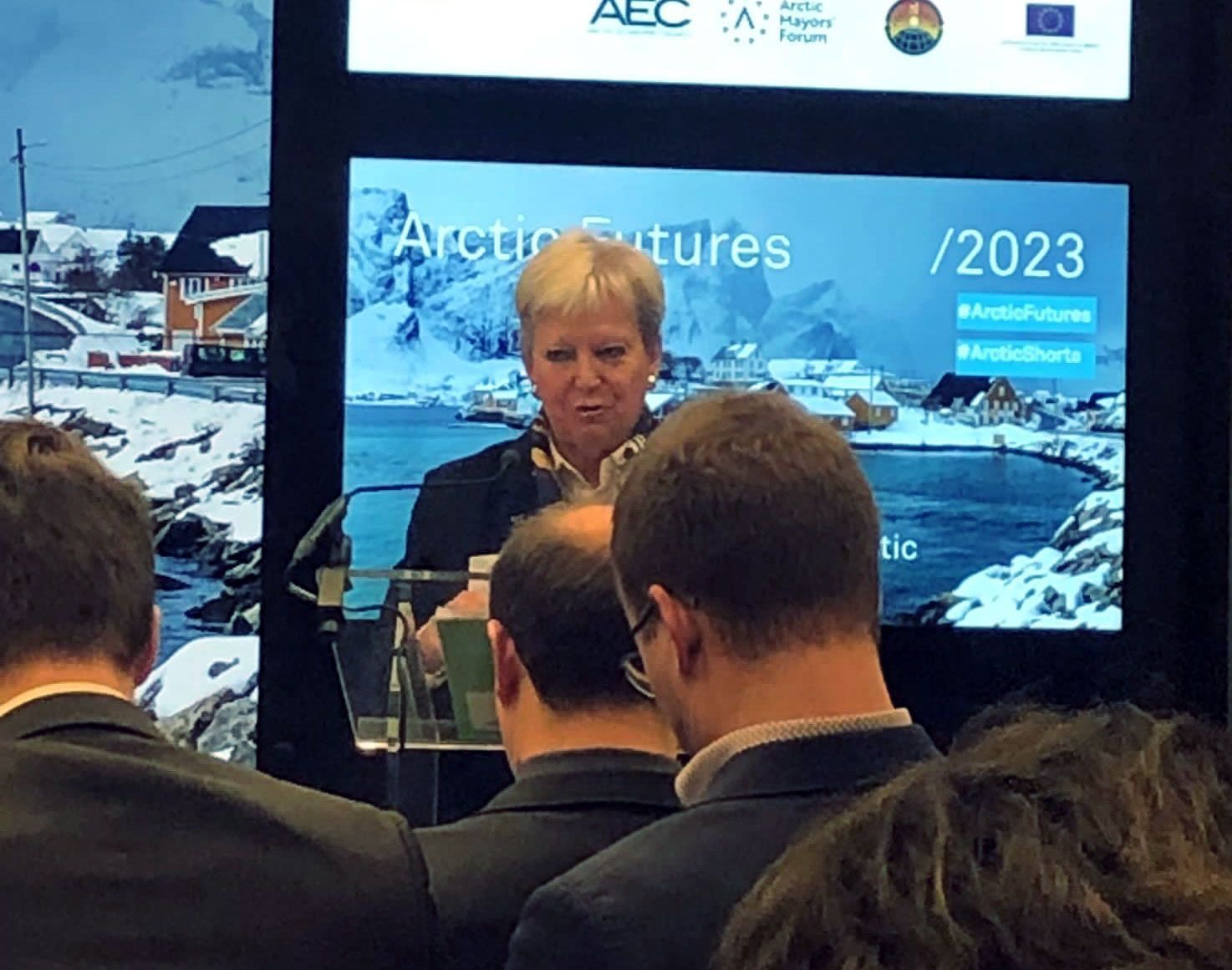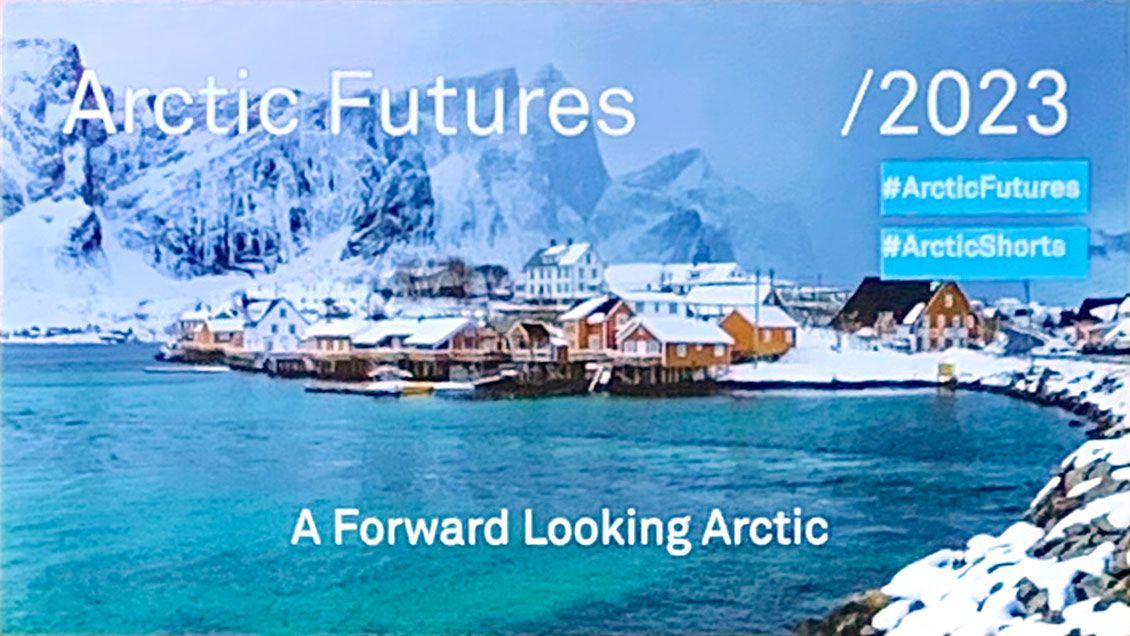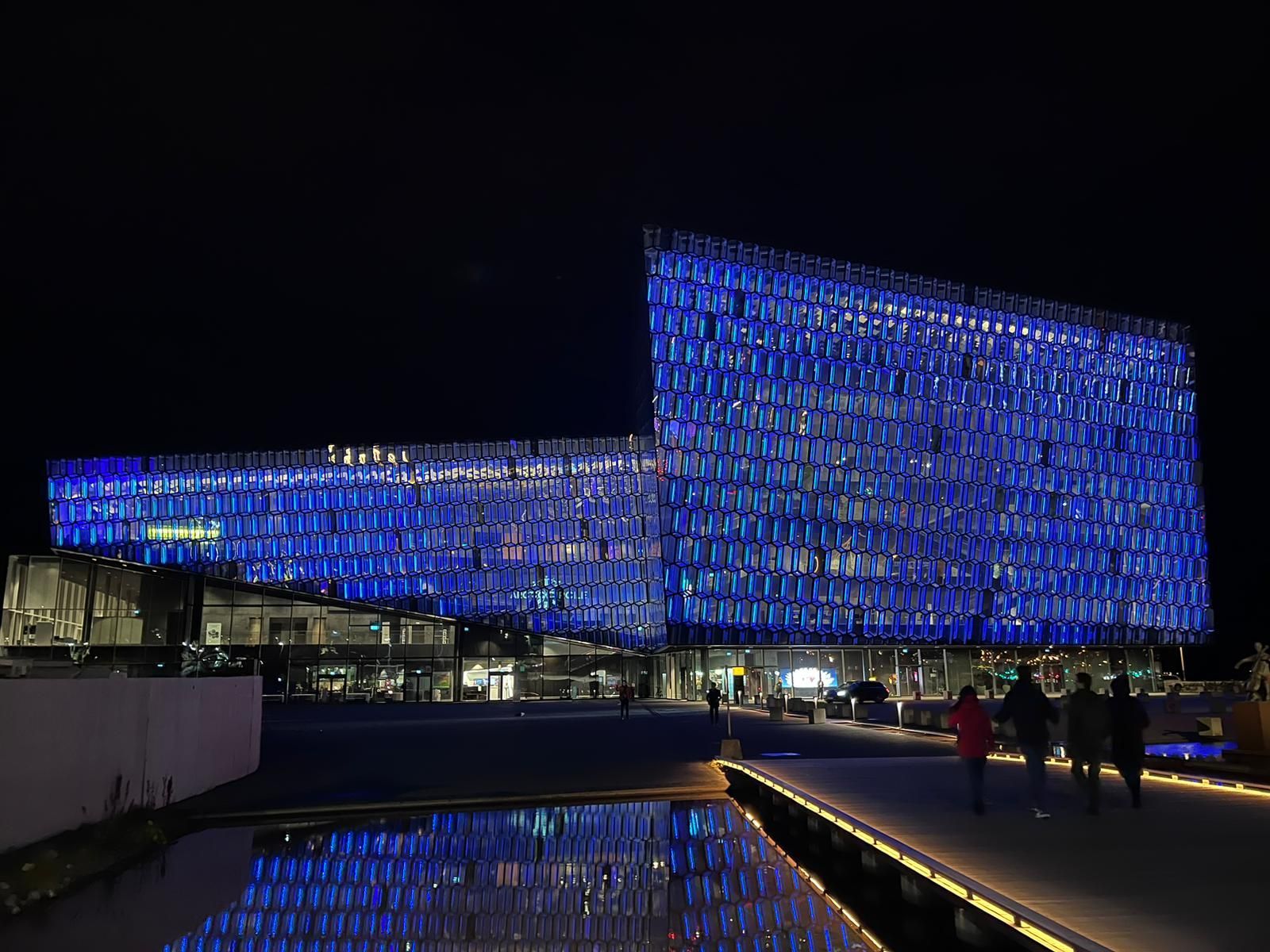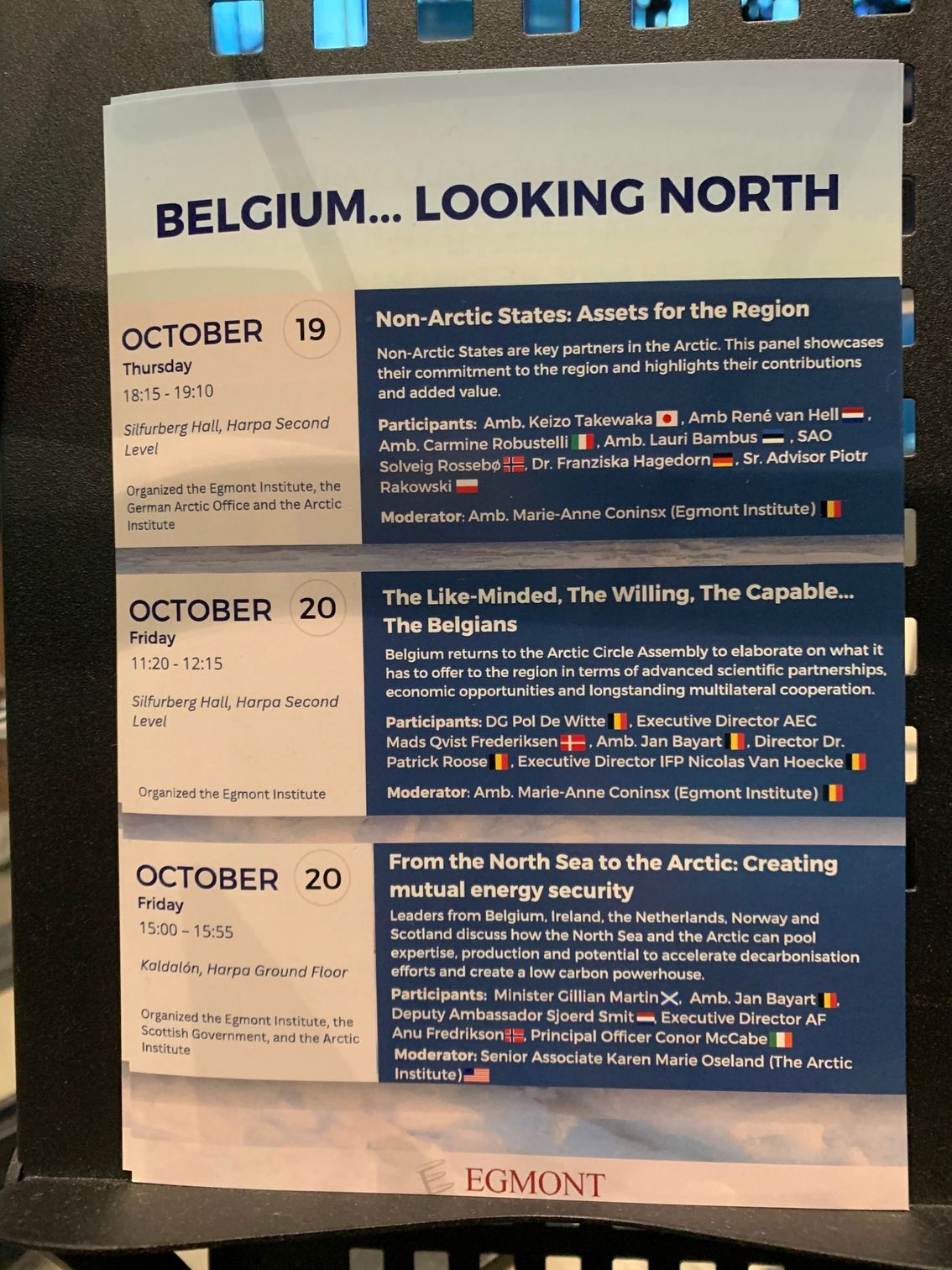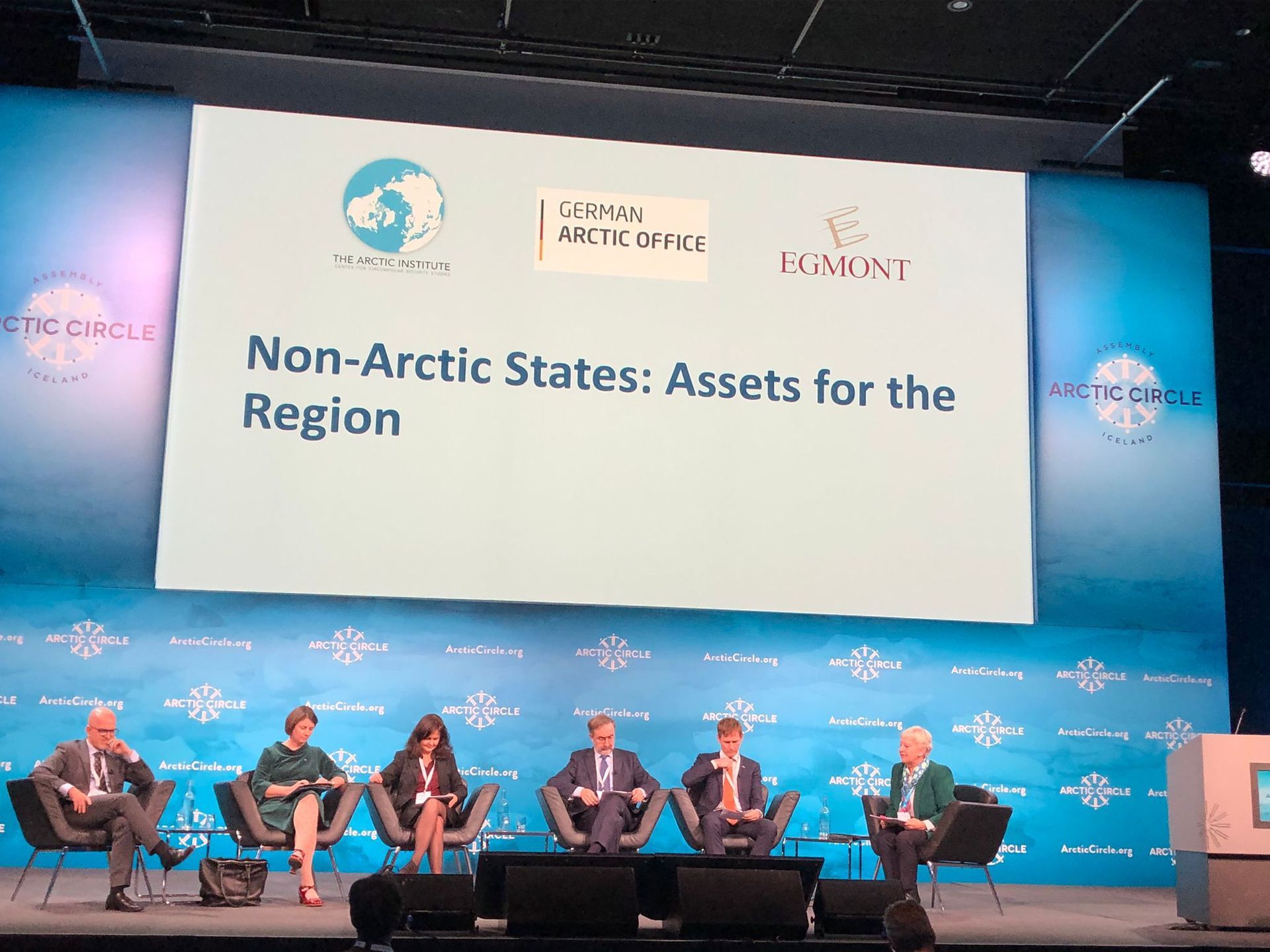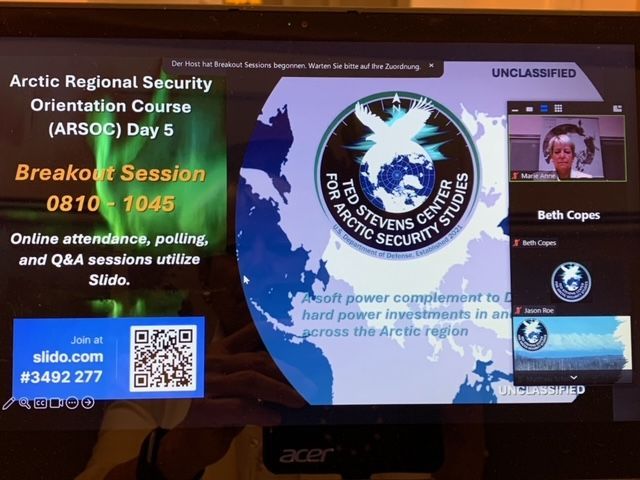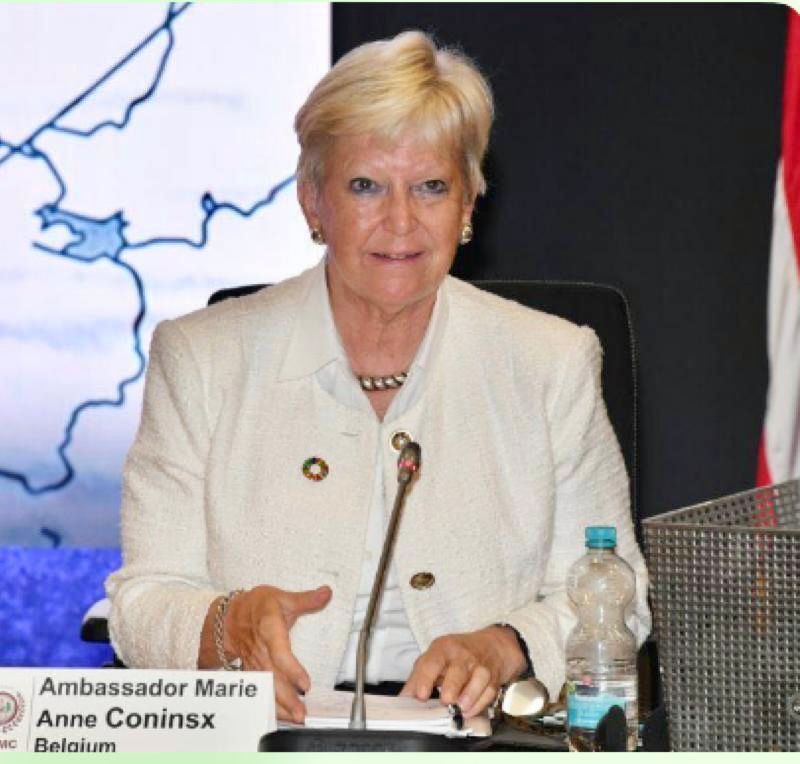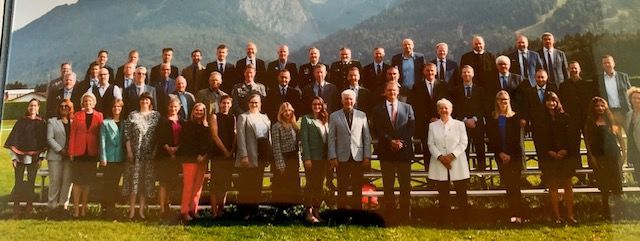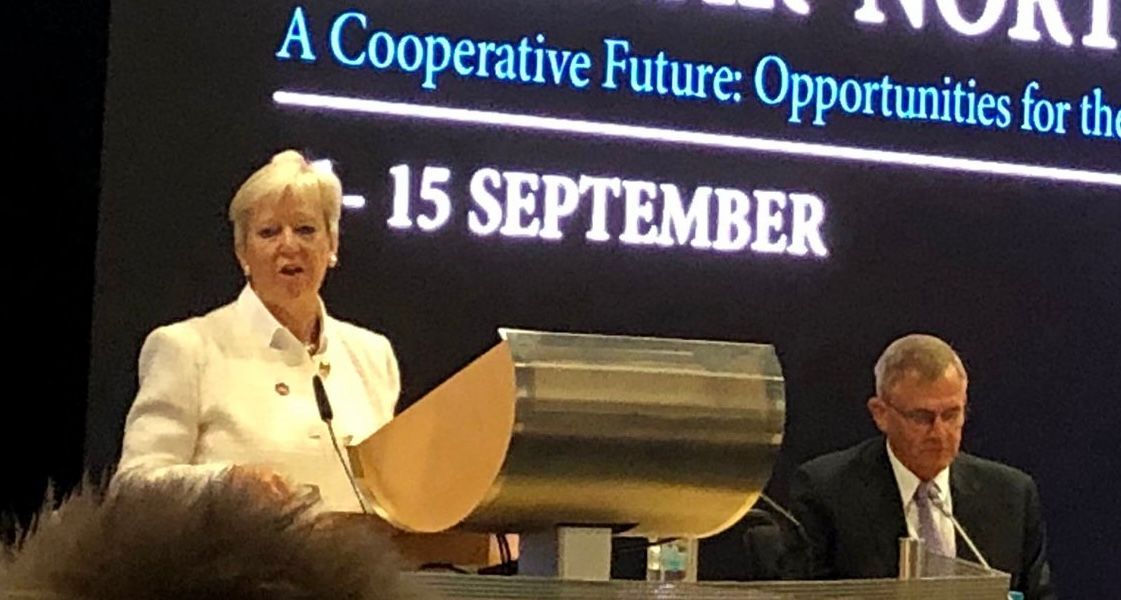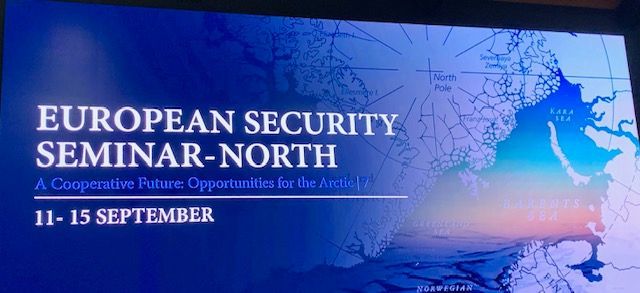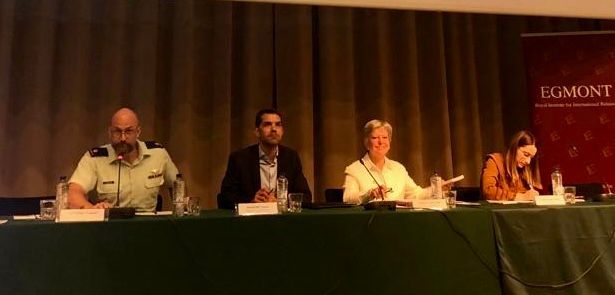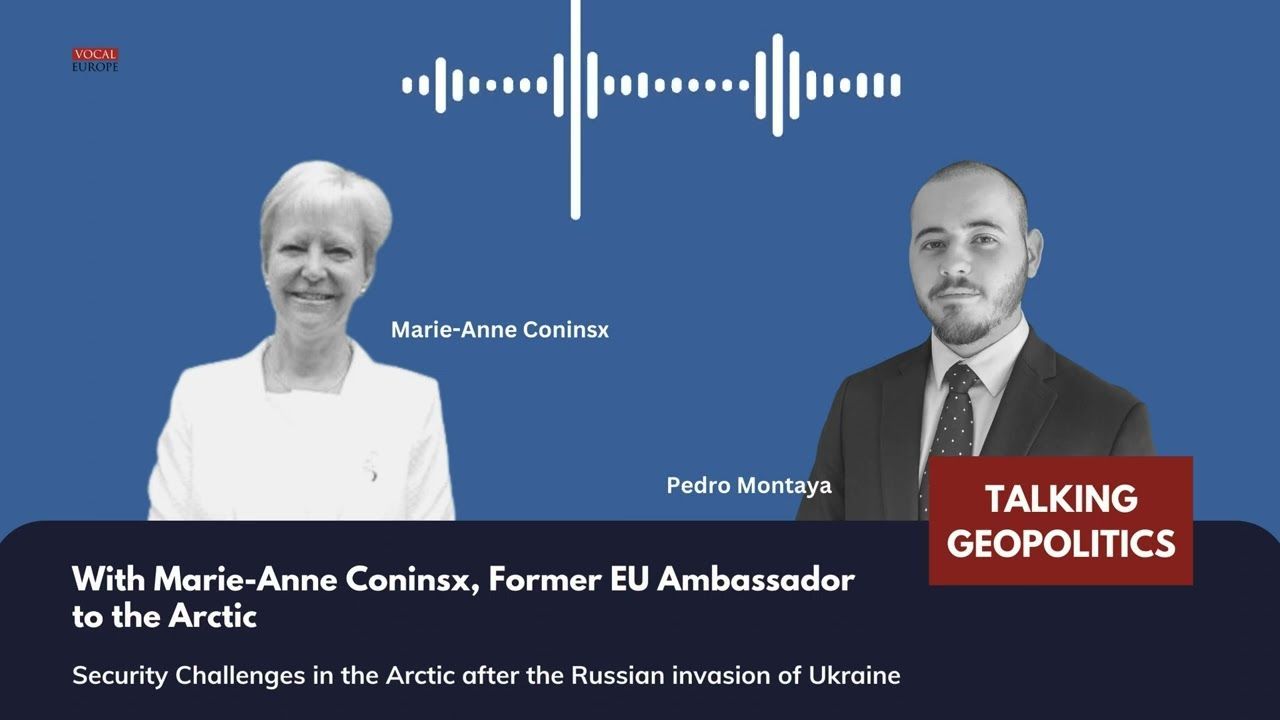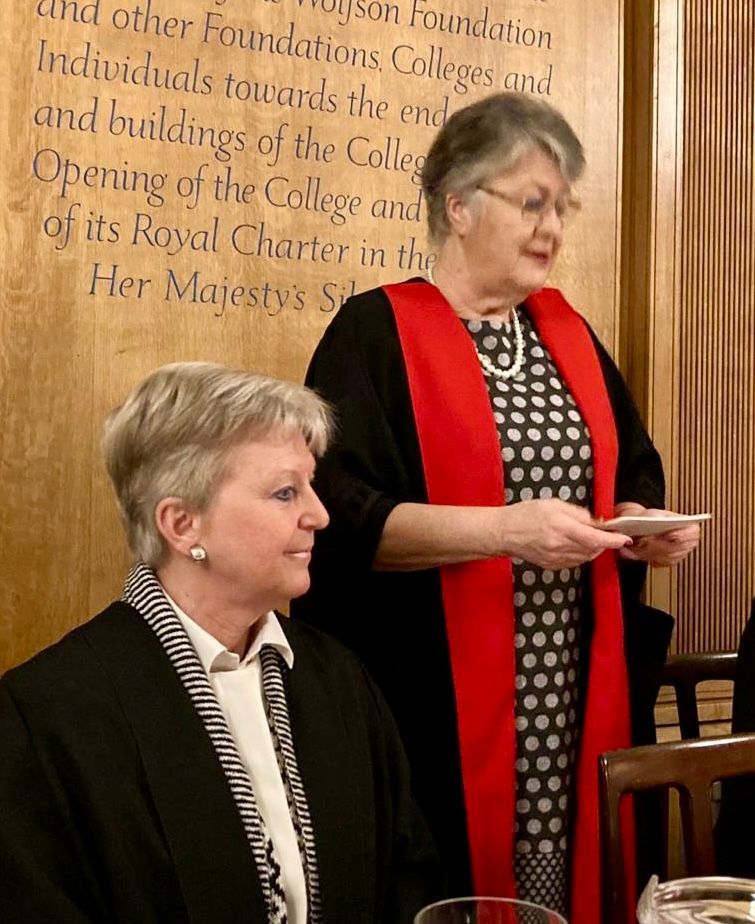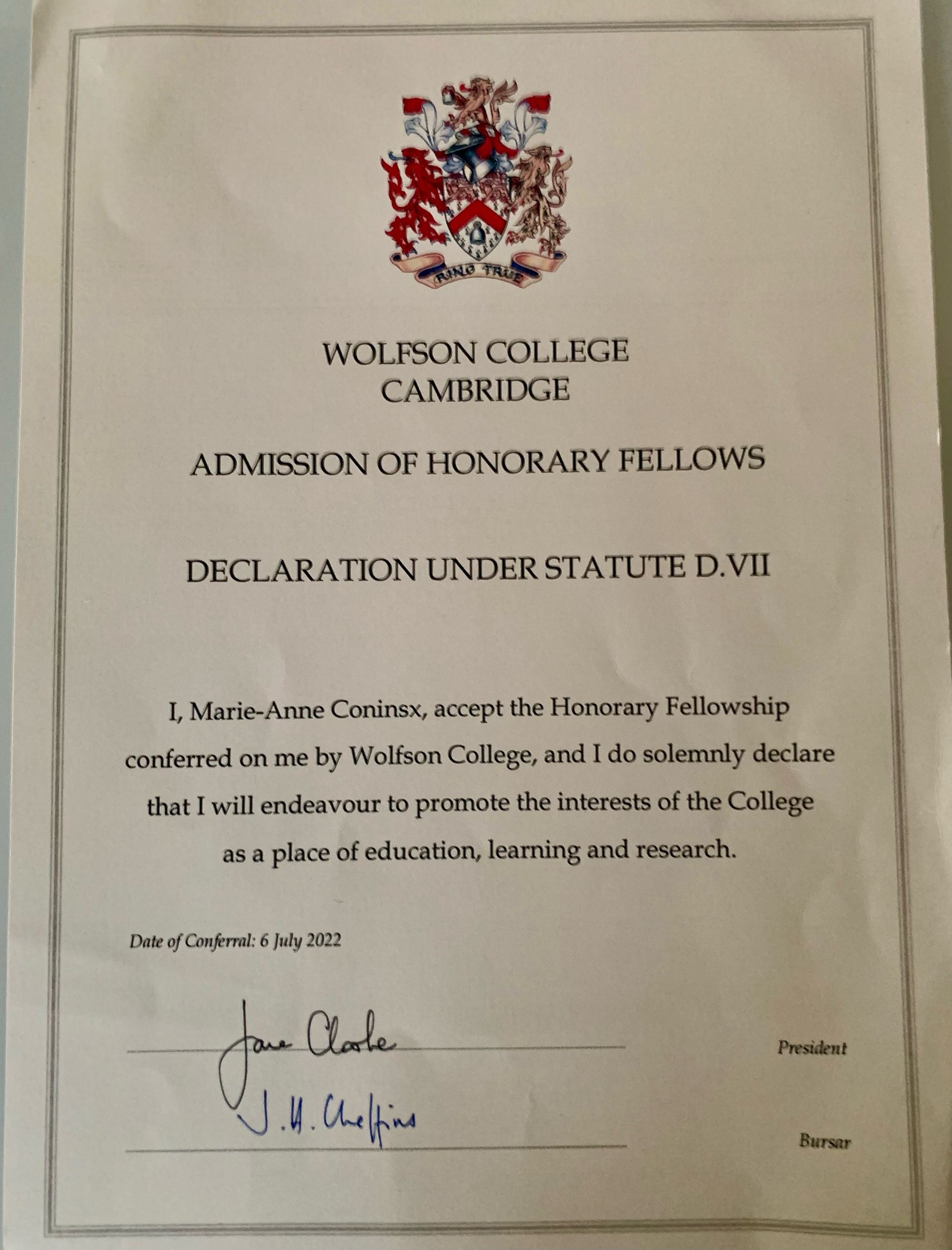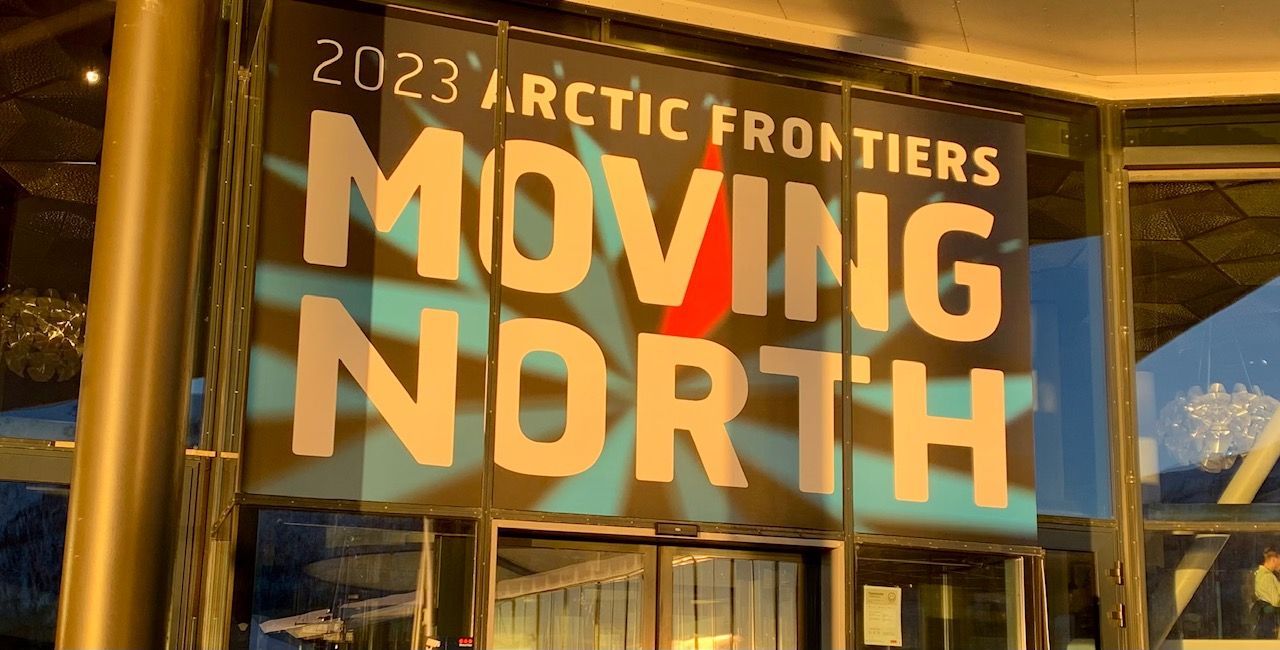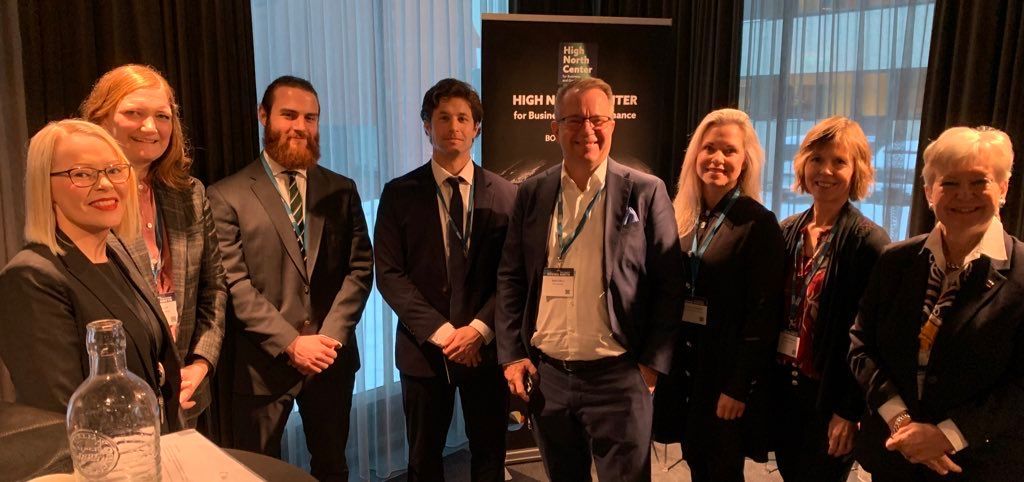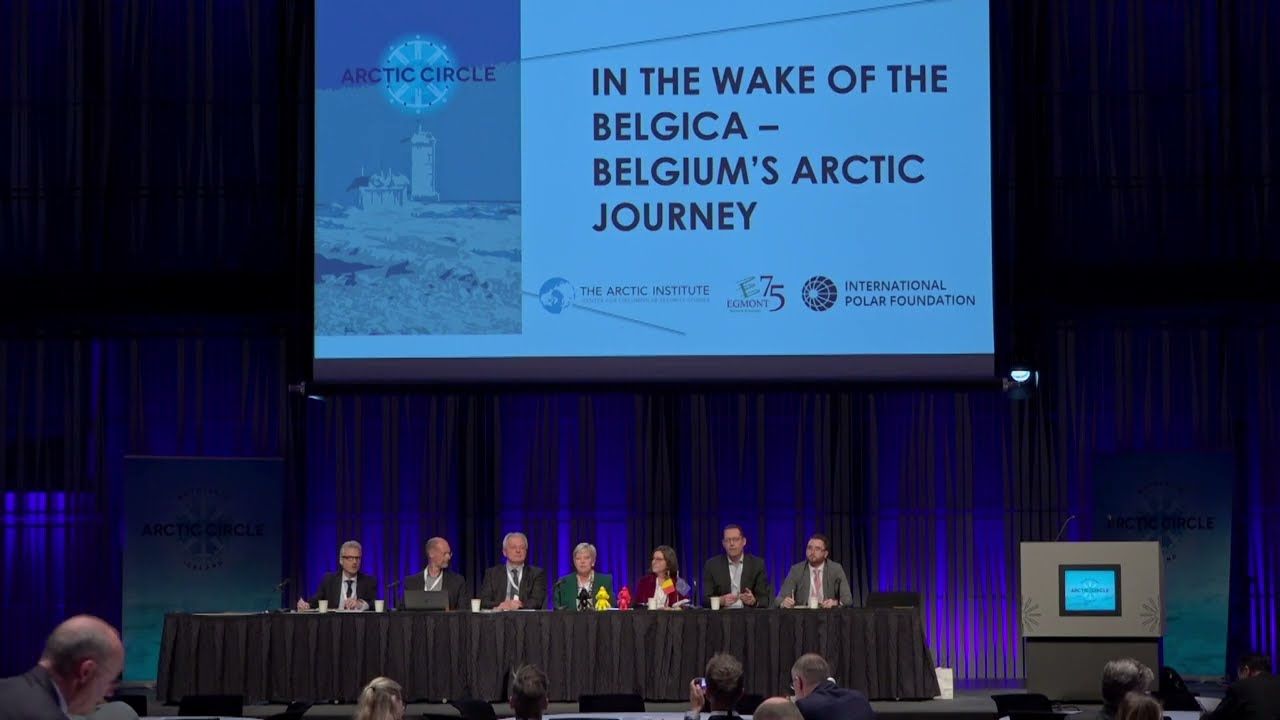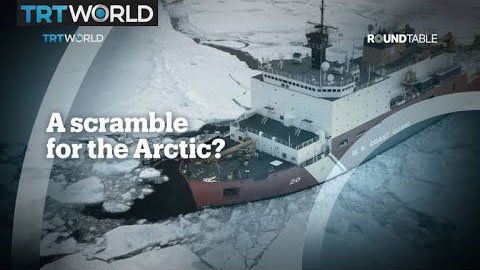Marie-Anne Coninsx
Reden
Speeches
Interviews
Copyright Eurolaw Verlag
My participation at the Lunch-Talk on the Arctic, organised by the Belgian Ministry of Foreign Affairs
Burssels, 25 March 2025.
On 25 March 2025, I was invited by the Belgian Ministry of Foreign Affairs, at the Lunch-Talk-Event, to speak about "The Arctic region and Belgium´s strategic interests". I was introduced by Ambassador Patrick Renault, Belgium´s Coordinator for the Arctic and Antarctica. It was an occasion to highlight Belgium´s strategic interests regarding the Arctic, particularly to protect climate and environment by contributing to scientific research and innovation;
to promote Belgium´s own economic interests aimed at contributing to sustainable development in the Arctic; and to promote stability and security in the Arctic by strengthening international cooperation.
These areas of strategic interests for Belgium should be reflected in the first Belgium Arctic Policy or Strategy, which hopefully will be on the agenda of the Belgian Government in a not too distant future. Indeed, such policy is not only a strategic necessity but it is also a moral imperative for Belgium.
My participation at the LSE - "EU in Practice Seminar Series" addressing "Trump, Putin and geopolitics:
the EU´s geopolitical awakening to the Arctic".
London 14 March 2025
On 14 March 2025, I participated at the EU in Practice Seminar Series of the London School of Economics (LSE), with a lecture on "Trump, Putin and geopolitics: the EU´s geopolitical awakening to the Arctic".
As the Arctic is becoming very much at the center of the world's attention not least because of President Trump's aspirations towards Greenland, my lecture focused on the geo-economic importance of the Arctic, having geopolitical implications where global powers such as the US, Russia, China and the EU come into play. It particularly addressed how these developments impact the EU´s stand on the Arctic, and whether the Arctic is sufficiently high on the EU's geopolitical agenda.
On 14 March 2025, I participated at the EU in Practice Seminar Series of the London School of Economics (LSE), with a lecture on "Trump, Putin and geopolitics: the EU´s geopolitical awakening to the Arctic".
As the Arctic is becoming very much at the center of the world's attention not least because of President Trump's aspirations towards Greenland, my lecture focused on the geo-economic importance of the Arctic, having geopolitical implications where global powers such as the US, Russia, China and the EU come into play. It particularly addressed how these developments impact the EU´s stand on the Arctic, and whether the Arctic is sufficiently high on the EU's geopolitical agenda.
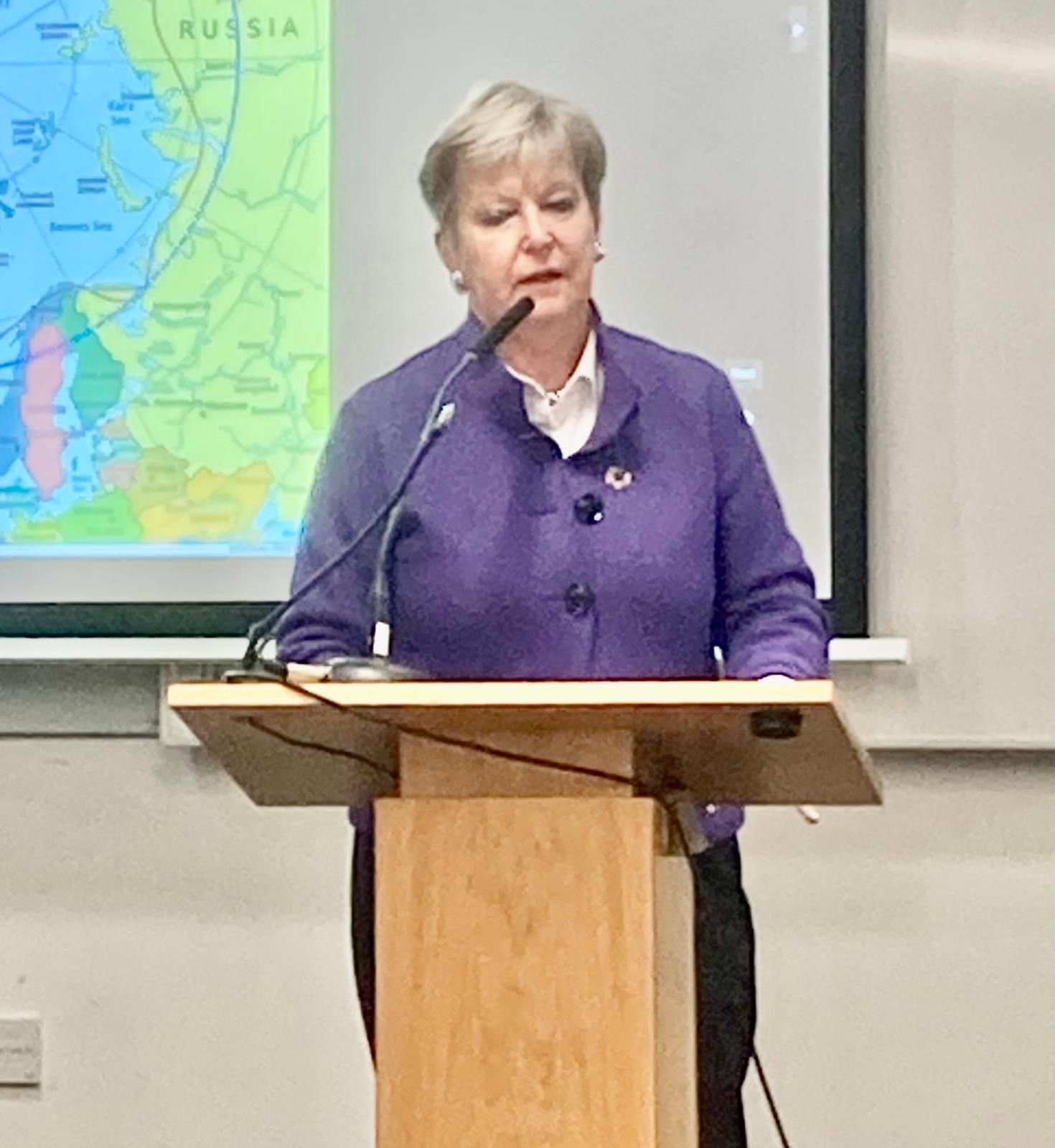
My participation at the Panel on the Erosion of International Law at Wolfson College,
Cambridge University.
On 8 March 2025, I participated at the Panel on the Erosion of International Law, which was organised by the Sir David Williams Law Society
at Wolfson College of Cambridge University (UK).
It was a good discussion, demonstrating that international law and the international law system are being challenged notably by clear breaches of the UN Charter - such as the use of force directed against the territorial integrity of a State (the Russian invasion of Ukraine), by the recent attitude by especially global powers such as the US to disregard international law (such the US attitude regarding Ukraine, Greenland, Canada and Panama), and by the emergence of authoritarian international law, such as the distortion of international Human Rights norms into norms supporting the autocratic government such as China. Today, international law is more needed than ever. To act within the framework of international law, is in the best interest of every state, including the most powerful.
Attached my speaking points which served as inspiration for my intervention at the panel-discussion.
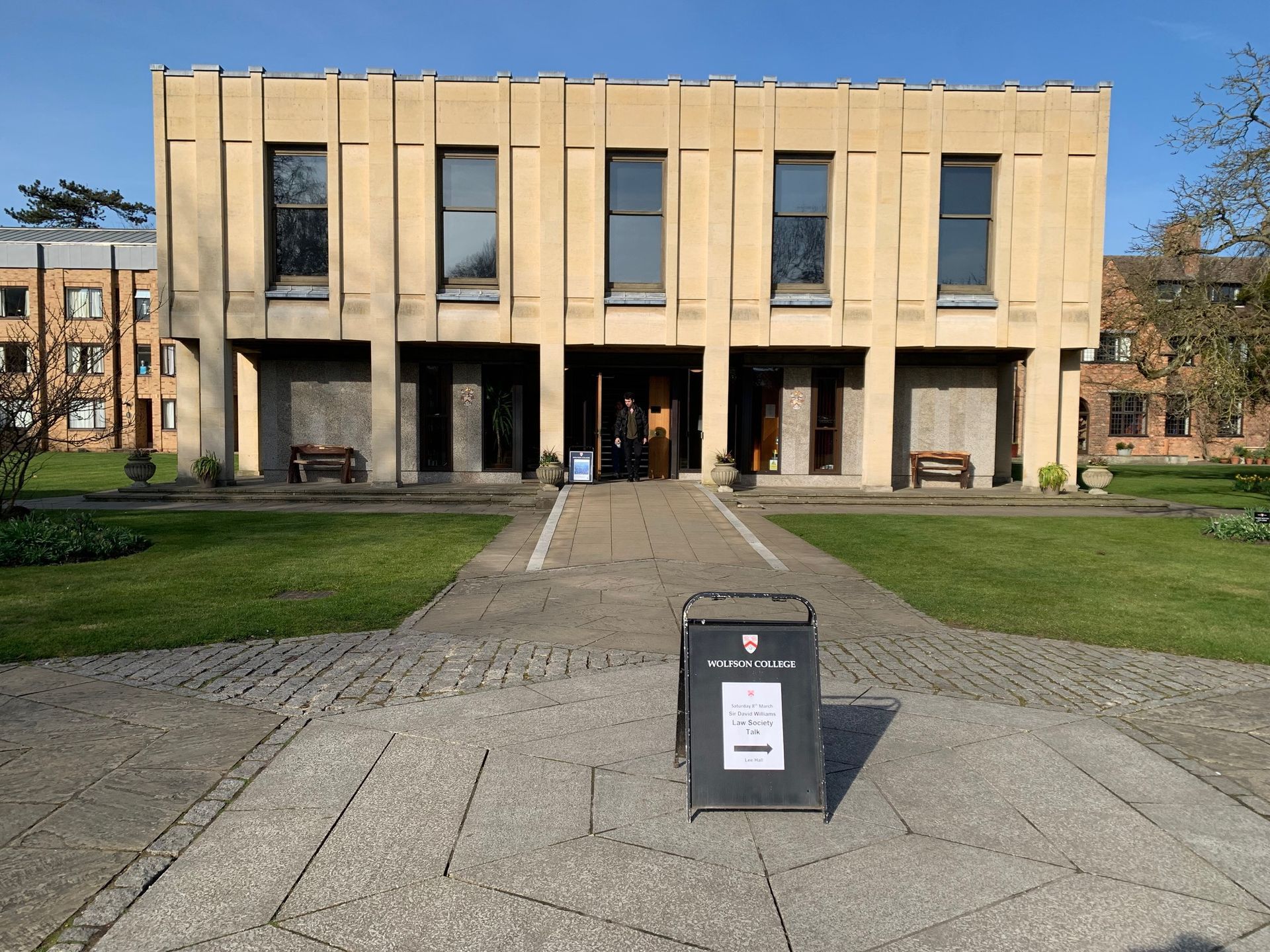
Egmont Conference, Brussels 5 December 2024
“The Arctic: Belgium's Role in shaping its Future.”
On 5 December 2024, the Egmont Institute - Royal Institute for International Relations of Belgium - organised a conference in Brussels entitled: “The Arctic: Belgium’s role in shaping its future”. The Conference discussed Belgium´s contributions to the region and the urgency of formalising Belgium´s Arctic Policy. I had the opportunity to moderate Panel 2 on “Economic interests, International cooperation, and Security” exploring the Arctic economic and geopolitical dynamics, demonstrating that in all these sectors, Belgium should and can play an important role in shaping the future of the Arctic.
The program of the conference can be found on the website of the Egmont Institute: www.egmontinstitute.be
Delivering closing remarks and summary
at Arctic Futures 2024.
On 2 and 3 December 2024, the 15th edition of the yearly Arctic Futures Symposium took place in Brussels, at Residence Palace. It was organised by the International Polar Foundation, together with Partners from Arctic countries or regions that are represented in Brussels. I had the honour to close the conference together with Mike Sfraga, US Ambassador at Large for the Arctic, and to deliver a summary of the Conference, focussing on the main take-aways of each of the sessions or panels. .
The programme of the Symposium can be found under the following link:
www.arcticfutures.org.
Adaptation vs. Mitigation: Sustainability Views from the Global South and COP 29
Conference on
"Adaptation vs Mitigation: Sustainability views from the Global South and COP 29".
Wolfson College, Cambridge University (UK) on 22 November 2022
On 22 November 2024, the Interdisciplinary Research Hub and the Sustainability & Conservation Hub of Wolfson College, Cambridge University, organised an event entitled “Adaptation versus Mitigation: Sustainability views from the Global South and COP29”.
It focused on the ongoing debate between the need for climate change adaptation measures and long-term mitigation strategies for emerging economies.
In my on-line intervention at the Expert Panel, I addressed the topics of discussion by drawing parallels between the challenges that the Global South is facing within COP 29, with similar challenges that the High North is facing.
Marie Anne Coninsx at the Belgian Royal Higher Institute for Defence
26 September 2024, Brussels
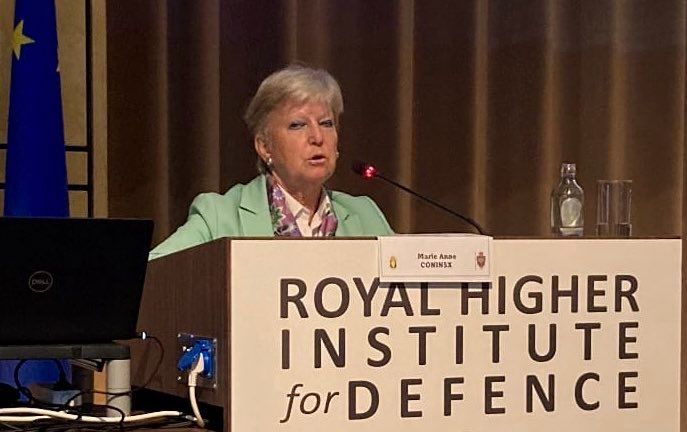
Upon invitation of the Royal Higher Institute for Defence, I gave a lecture on “The European Union and the Arctic”, at the 20th Common Security & Defence Policy (CSDP) High Level Course 2024-2025 “José Cutileiro” Module 1, on 26 September 2024 in Brussels (Belgium).
Given that the Arctic security landscape is undergoing an immense transformation in recent years and is emerging at the forefront of strategic competition, my lecture not only addressed the EU´s stand on the Arctic, but focused also on Arctic security, considering the growing security threat in Europe´s high north,
Russia´s increased aggressive stance, and the emerging Sino-Russia partnership in the Arctic, also in the military field.
Attached my lecture of 26 September 2024. Check against delivery.
Marie Anne Coninsx at the High North Security Dialogue
September 2024, Garmisch-Partenkirchen (Germany)

Discussing Arctic security was at the heart of the High North Security Dialogue 2024 (HNSD) which was organised by the George C. Marshall European Center for Security Studies (Germany) and the Ted Stevens Center for Arctic Security Studies (Alaska), at the George Marshall Center in Garmisch-Partenkirchen (Germany), from 17 to 20 September 2024. HNSD is previously known as the European Security Seminar North series, at which I had the opportunity to participate over the last years, since it was initiated.
HNSD 2024 examined the emerging Sino-Russian partnership, transatlantic cooperation - particularly considering NATO´s enlargement with Finland and Sweden who both are Arctic States, integrated deterrence and defense of the Arctic region. This included assessing the impact of climate change, economic and societal developments with special attention to building resilience also at local level, and innovative technologies on security and stability in the region.
It was a most timely event given the growing impact of geopolitical turbulence on Arctic security, with an increased aggressive stand of Russia especially towards NATO and Northern States, with an emerging alliance between Russia and China in the Arctic including in the military field, and increased strategic competition in the region, fueled by climate change. Also, a timely event to discuss the positive impact and implications of the accession of Finland and Sweden into NATO, leading to a much-welcomed shift of NATO ‘center of gravity shifting northwards. The HNSD above all, demonstrated a strong bond between allied Arctic,
non-Arctic States and like-minded stakeholders, wanting to address the security challenges in the Arctic region in a strong cooperative and coordinated manner.
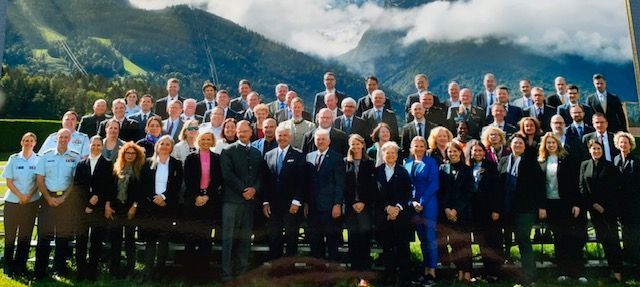
An Asset for the Region: the role of European Non-Arctic States
8 May 2024, Artic Circle Berlin Forum, Berlin
On 7 and 8 May 2024, the Arctic Circle Regional Forum took place in Berlin, entitled "The Arctic at Crossroads" with a focus on science, climate, policy, and Europe. On 8 May, I had the pleasure to moderate a panel-discussion on "An Asset for the Arctic: the role of European Non-Arctic States", organised by the Belgian Egmont Institute, the Polish Ministry of Foreign Affairs, and the Arctic Institute. At the Panel, representatives from the EU, Germany, Italy, Ireland, and Poland participated. It was once again an unique opportunity to give visibility to the great contribution that Non-Arctic States - being Observer or not to the Arctic Council - are capable of bringing to the Arctic file. Indeed, they have an impressive knowledge and experience in all matters that are important for addressing the huge challenges that the Arctic is facing, particularly in this most turbulent geopolitical environment.
Marie Anne Coninsx at Panel debate on International Arctic Research Cooperation at the Arctic Circle Berlin Forum
7 and 8 May 2024, Berlin
On 7 and 8 May 2024, the Arctic Circle Regional Forum took place in Berlin, entitled "The Arctic at Crossroads" with a focus on science, climate, policy, and Europe. On 7 May, I had the pleasure to participate at a panel discussion on "International Research in the Arctic amidst Global Tensions" organised by the Polish Polar Consortium. In my intervention, I highlighted the key importance of research for the Arctic, given that science is crucial for understanding the dramatic changes that are taking place in the Arctic, for identifying sustainable and innovative approaches to tackle the major challenges the Arctic is facing, and for science diplomacy. It was an occasion to reiterate the substantive contribution of the European Union to science, research and innovation in the Arctic. Also, to point to the fact, that the current volatile geopolitical situation, is an occasion to profit from the impressive Arctic research capacities and expertise of Non Arctic States.
Joint Panel discussion Wolfson College - Scott Polar Research Institute “The Changing Arctic - Why does it matter?”
6 March 2024, Wolfson College, Cambridge University (UK)
As an Alumna and Honorary Fellow of Wolfson College, I had the great pleasure to participate at a Panel discussion on “The Changing Arctic - Why does it matter?”, jointly organised by Wolfson College together with the Scott Polar Research Institute in Cambridge, on 6 March 2024.
The Panel addressed challenges that the Arctic region and its inhabitants are currently facing, from climate change, threats to regional governance, and a need for sustainable development. It addressed how the changing Arctic has impacts well beyond the region, affecting global environments, geopolitics, and geo-economics, as the region presents new opportunities, and resources needed for the green transition in Europe. The panel demonstrated that the Arctic is equally strongly impacted by the outside world, especially as the drivers of climate change are situated beyond the region and as global geopolitical turbulences affect Arctic governance and security.
Hereby an introduction of the panelists, and my response and/or comments to the questions put to the respective panelists.
Arctic Frontiers 2024 - My participation at the Session “A Global Arctic: Navigating the New Reality”.
#ArcticFrontiers2024
As at previous years, I had the great pleasure to participate at the 2024 Arctic Frontiers conference, which took place from 29 January to 1 February 2024 in Tromsø (Norway). Unfortunately, unexpected storm prevented many participants, including myself, to be present in person, but a great Arctic Frontiers Team permitted an active online involvement.
In a world upset by unprecedented challenges, the global community is at a critical juncture, where cooperation and strategic planning are imperative for navigating the complex landscape ahead. This inspired the title of the 2024 Arctic Frontiers edition, being “Actions & Reactions”,
Key-themes of the conference reflected the current turbulent geopolitical environment that affects the Arctic and included innovative topics, as demonstrated by plenary discussions on “Arctic Security - Local Resilience”, “Insight into Arctic AI”, “Navigating Arctic Realities” or “Rethinking Arctic Development” highlighting that for business to be successful in the Arctic, it needs to consider sustainable development, human rights, environmental concerns, and local benefits.
I participated at the Panel discussion,
“A Global Arctic: Navigating the New Reality”. During the panel discussion, I addressed this topic seen from the perspective of the European Union and individual EU countries States, being either Observer or not at the Arctic Council. My speaking points are hereby attached. The session was streamlined, and can be found
here on YouTube.
Marie Anne Coninsx at "Arctic Science meets Policy" Event at BELvue Museum
Brussels, 22 January 2024
On 22 January 2024, a conference “Arctic science meets policy” - jointly organised by BELSPO, the Egmont Institute and APECS Belgium-, took place at the prestigious BELvue Museum in Brussels, which at the same time hosted an exposition “The end of the world! Climate expedition aboard the Belgica”.
The event highlighted current Belgian-led scientific activities and achievements in the Arctic. It discussed future research priorities for the Arctic that is warming nearly four times faster than the rest of the world, and that is heavily impacted by climate change. It focused on the importance of strengthening links between science, policy, and the private sector. Speakers included leading Belgium Arctic scientists from a variety of disciplines, as well as representatives of different policy bodies and the private sector. As Senior Associate Fellow at the Egmont Institute, I moderated the “Set-the-Scene Panel” of the conference, and made the linked statement.
My participation at the Nocturne on “Market opportunities in the Nordics and Baltics for offshore wind and hydrogen”
Antwerp (Belgium), 5 December 2023
On 5 December 2023, Belgian business associations, AGORIA together with SIRRIS, organised a Nocturne event in Antwerp (Belgium), dealing with “Market opportunities in the Nordics and Baltics for offshore wind and hydrogen”. It was primarily a business-oriented event, aiming to give visibility to opportunities for Belgian enterprises regarding renewable energy in the high north, especially offshore wind energy and hydrogen production.
I participated in a Panel session, entitled energy transition in the Arctic towards 2050. Having asked to address geopolitics of the Arctic, it was also an opportunity to speak about geo-economics in the Arctic. I spoke about the potential of rich natural resources, which are currently present in the Arctic, and that are becoming more accessible because of the warming up of the region. New economic opportunities especially relate to renewable energy resources and critical minerals, which are key for Europe ́s green transition and for securing economic strategic autonomy. There is no doubt that Belgium enterprises with high expertise in innovation and renewable energy such as offshore wind, should grasp the opportunities that these developments in the Arctic offer.
I particularly enjoyed being engaged in my home country, in discussions with business representatives from innovative industries, on the relatively unknown Arctic file, on its challenges and the hug potential of opportunities it presents.
Closing Speech Marie Anne Coninsx at Arctic Futures Symposium - Brussels - November 2023
In November 2023, the 14th edition of the yearly
Arctic Futures Symposium
took place in Brussels, focussed on the theme: "A forward looking Arctic". At this occasion, I delivered the closing speech, summarising and commenting upon a Conference marked by a very rich, intensive dialogue among Stakeholders, which took place against the background of turbulent geopolitical developments that also impact upon the Arctic and its People.
My participation at the Arctic Circle Assembly in Reykjavik, October 2023
#Arctic #ArticCircle2023 #EgmontInstitute #IPF #BelgiumInNorway #Belgium
It was a great pleasure to participate at the 10th edition of the Arctic Circle Assembly (ACA 2023) that took place from 19 to 21 October in Reykjavik, Iceland. The Arctic Circle Assembly is the largest annual international gathering on the Arctic, the largest network of international dialogue and cooperation on the future of the Arctic. Its strength lies in the fact that it is a very inclusive event, with participation of all relevant Arctic stakeholders, from the region and far beyond; with representatives from government, diplomacy, science and business; and with strong involvement of the people of the Artic, the Indigenous Peoples, and especially the youth. Inclusive also, as it does no shy away to discuss any possible topic related to the Arctic, with no taboos.
Arctic Region Security Orientation Course - ARSOC
On 22 September 2023, I delivered the closing Speech at the Arctic Region Security Orientation Course, or ARSOC, organized by the Ted Stevens Center for Arctic Security Studies in Alaska, USA. My speech focussed on addressing three main challenges that the Arctic is facing, notably, the climate challenge, the economic challenge, and particularly the security challenge. In doing, so, I also spoke about the chances and opportunities that these challenges represent for the Arctic and its people, but also beyond the Region.
#TedStevensCenter #Arctic
The Impact of Climate Change on Arctic Security
On 9 June 2023, I delivered a key-note speech entitled “The Impact of Climate Change on Arctic Security” at the Conference jointly organized by the Belgian Royal Military Academy and the Egmont Institute, on "Climate Change and the Arctic. Security Implications” .
Brussels, Royal Military Academy.
The Emergence of Arctic Resources: Impacts on Geopolitics, the Green Transition and Sustainability
On 26 May 2023, I delivered a key-note speech at Wolfson College, Cambridge University, on "The Emergence of Arctic Resources: Impacts on Geopolitics, the Green Transition and Sustainability". The conference was co-organised by the Wolfson Law Society, the Wolfson Humanitarian Society, and the Interdisciplinary Research Hub in Sustainability and Conservation.
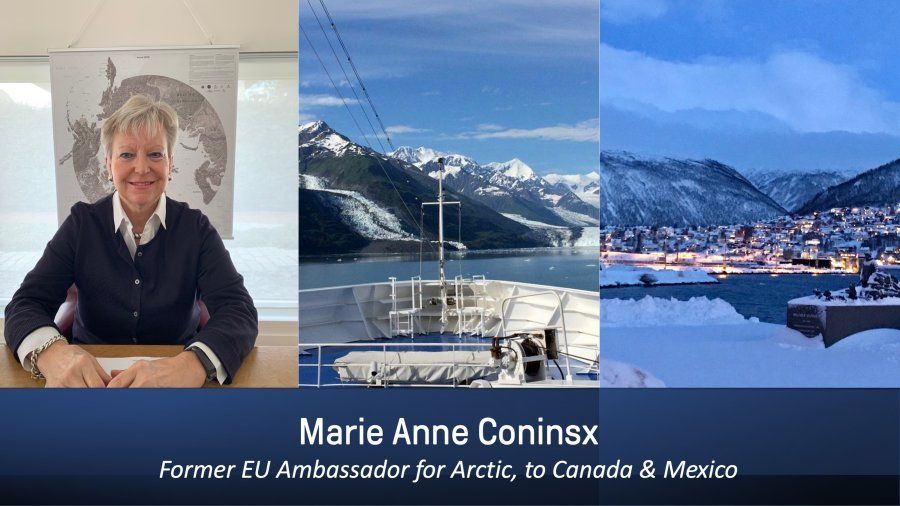
The warming up of the Arctic generates unprecedented potential for the extraction of its huge natural resources. While some of these resources make the Arctic a perfect incubator for clean energy, increased economic activity represents a huge challenge for sustainability. From a strategic perspective, the increased Arctic economic and commercial potential is attracting global attention and is having clear geo-economic and geopolitical consequences. This key-note speech specifically addressed the emergence of arctic resources and their impact on geopolitics, the green transition and sustainability.
“National Security This Week“ program. Interview on International security interests in the Arctic
(15/03/ 23) - Radio KYMN Minnesota - USA
On 15 March 2023, I participated at the “National Security This Week” program of KYMN Radio Minnesota 🇺🇸, addressing international security in the Arctic. More particularly, the Host of the radio program, Jon Olson, asked questions about the Egmont Institute, and touched upon the
safety, economic, demographic, environmental, and security dynamics of the Arctic region.
Interview at the occasion of International Women’s Day with Wolfson College
Cambridge University - 8 March 2023
At the occasion of International Women’s Day - 8 March 2023 - I had an interview with my former Wolfson College at Cambridge University. I was asked about the big questions that still drive me, and about the women who inspired me along my journey.
Interview by Vocal Europe (Brussels)
With Marie-Anne Coninsx on Security Challenges in the Arctic after the Russian Invasion of Ukraine
As part of their “Talking Geopolitical Podcast Series”, I had an interview with VOCAL EUROPE (Brussels) on security challenges in the Arctic after the Russian invasion (10 March 2023).
I addressed the current state of the EU Arctic Policy, emphasising the Arctic security challenges. The interview touched upon the European Union's role as a geopolitical actor and its struggle to gain influence in a region with more and more competitors, such as China. I also provided insights on Arctic governance and how the EU can deal with climate change and the so-called "Arctic Paradox".
Speech Marie Anne Coninsx at the occasion of obtaining the Honorary Fellowship of Wolfson College - Cambridge (UK)
1 March 2023, Wolfson College, Cambridge University (UK)
On 1 March 2023, at the occasion of having been awarded Honorary Fellow of Wolfson College, Cambridge University, I delivered the following speech at the Fellows’ Night Dinner, chaired by Professor Jane Clarke - President of Wolfson College - on 1 March 2023, at Wolfson College.
Arctic Frontiers 2023 - Speaking notes Marie Anne Coninsx on Arctic Leadership
On 1 February 2023, at the occasion of the Arctic Frontiers conference 2023 in Tromsø (Norway), I participated at a well-attended side-event, a panel discussion on “Arctic Leadership” . I highlighted that also non-Arctic States, such as Belgium, can play a leadership role on certain Arctic issues, given notably its expertise on world-class polar research” . #ArcticFrontiers2023
In the wake of the Belgica - Belgium´s Arctic Journey
Panel-Diskussion im Oktober 2022 während der "Arctic Circle Assembly" in Reykjavik, Iceland
Hereby the recording of Belgium’s first official participation in the Arctic Circle Assembly in Reykjavik, on 14 October 2022, which elaborates on Belgium’s ambitions, activities and achievements in the Arctic. The panel discussion was moderated by former EU Ambassador for the Arctic, Marie Anne Coninsx participating in her capacity of Associate Senior Fellow of the Egmont Institute. The following panelists participated at the discussion: Belgium´s Ambassador to Norway and Iceland, Frank Arnauts; Professor Dr Huybrechts who is the Belgian representative at the Arctic International Science Committee; Nicolas Van Hoecke, CEO of the International Polar Foundation; Director General of the Egmont Institute, Pol De Witte; EU Special Envoy for the Arctic, Clara Ganslandt and Romain Chuffart, President and Managing Director of the Arctic Institute.
Polar Geopolitics
with Eric Paglia
Polar Geopolitics analyzes the local and global implications of rapid climate change and rising international interest in the Arctic and Antarctica. The podcast is centered around in-depth discussions with experts on a wide array of topics relevant to the northern and southern polar regions, including governance and international relations; geo-economics and resource exploitation; environmental preservation and sustainable development; scientific research and science diplomacy; infrastructural expansion; and social and societal issues in high latitude locations. [Source: Apple Podcasts, 17.11.22 ]
A scramble for the Arctic
Organisiert von TRT World (@trtworld) am 5 Oktober 2022
Arctic Frontiers 2022 Conference.
Session: From Science Policy to Impact in the Arctic.
May 2022, Tromsø, Norway
Speaking points for panel discussion by Marie-Anne Coninsx
Introduction:
There is hardly any area where science plays such as key role, as is the case with the Arctic. Indeed, science is key to understand the developments going on in the Arctic, with its implications within the region and far beyond.
Science is key to find solutions in addressing the huge challenges the Arctic is facing, such as climate change. Science is key for ensuring sustainable development in the Arctic, mainly in developing innovative technologies that enable zero-emission production of resources, such as green steal in Sweden, or that ensure full circular economy industrial parks in northern Norway, or enable that renewal, green energy functions in the Arctic (e.g. windmills in the Canadian Arctic) by applying “cold weather technologies”. Science is also key to enable connectivity in the Arctic, to ensure digital services for the local communities, that for example help to manage reindeer herders in Lapland.
Science is the vital basis for decision-making regarding Arctic policies. Therefore, science-policy-engagement is key.
Looking at the European Union, it is clear that science plays a key role in Arctic affairs.
Conference “Cooperation and Competition in the Arctic: Ways Forward”
Panel 3: Adapting multilateral formats to the changing settings.
Organised by the Atlantic Council Northern Europe Office, 28 April 2022, Stockholm, Sweden
Speaking points Marie-Anne Coninsx
The Dilemma:
The war by Russia has caused dilemmas in many areas:
1. What are the facts?
The facts are, that in many important areas - such as security, energy, climate change and the Arctic, a narrow cooperation with Russia is needed.
This is evident, looking at the size of the Russian Arctic. Also, cooperation is needed, because - as stated in recent Arctic report by the European Parliament1 : “International cooperation is the bedrock of a safe, stable, prosperous, accessible and peace Arctic”.
Also, a fact is that many of the geo-economic and geo-political implications of the warming up of the Arctic, are directly linked to Russia and require cooperation.
Model Arctic Council
(Speech at SCOTMAC Conference, in Oban (Scotland), 11-13 March 2022)
Introduction
Many thanks to the Scottish Government for inviting me as the honorary Chair of this Conference. Thanks for giving me the opportunity to witness the power of Youth Diplomacy.
I am particularly pleased being here, because of the topic of the Conference – the Arctic – and because it takes place in Scotland. I am a fan of Scotland and of Scottish Arctic Policy.
This Conference is an exercise with students. Interacting with young people always has been a priority of mine throughout my professional live and especially in my diplomatic career.
I am also pleased to participate at this assimilation exercise of the Arctic Council, the “real” Arctic Council, which I have experienced for two years as EU ́s Arctic Ambassador.
Indeed, the European Union, being a defacto Observer of the Arctic Council, I participated at all meetings of the Arctic Council. I was present at the Ministerial Meeting in 2019, followed all Senior Arctic Official meetings, and some of the meetings of the Working Groups....
“Wolfson College at COP 26” Conference - Cambridge University (UK)
“Is sustainable development possible in the Arctic?”
Digital Presentation by Marie-Anne Coninsx
20 October 2021, Cambridge, UK
Introduction - The issue in a nutshell:
When speaking about the Arctic, it is important to know that the Arctic is not only about polar bears on ice, but also about a vast region where four million people are living. There are different Arctics. Especially in the European Arctic (northern Europe and the Russian Arctic) you will see vibrant cities and communities, universities and even industrial parks. This Arctic region is warming up dramatically.
This Arctic warming-up is contributing to global warming. At the same time, the melting of the Arctic provides enormous new economic opportunities, given that it becomes easier to have access to the very rich natural resources in the Arctic. Hence, a key question is whether sustainable economic development in the Arctic region is possible, without damaging the extremely fragile environment, and particularly without contributing to global warming and climate change.
„How Innovation and Research offers new Perspectives for the Arctic“
Keynote Speech of Marie-Anne Coninsx
Wolfson Research Event 2021.
Wolfson College, Cambridge University, UK, 28 April 2021
As an Alumna of Wolfson College, I am honored to address the Wolfson Research Event 2021. My presentation will address, how Innovation and Research offers new Perspectives for the Arctic.
From the outset, I would like to stress that there is no other area where science, research and innovation plays such a key role, as is the case of the Arctic. Indeed, science is key to: (1) understand the dramatic changes that are being observed in the Arctic, (2) identify sustainable and innovative approaches to tackle the major challenges of the Arctic, and (3) to underpin knowledge-based political decisions.
Before illustrating these three elements, a brief word about the Arctic itself, given that overall, the topic is not very well-known.
The Arctic is unique. The Arctic is primarily an ocean, the smallest of all oceans, but 1,5 of the size of the US. The Arctic is a vast, mostly remote area1 of unspoiled, natural beauty, with major parts covered by ice and snow. But the Arctic is also the home of 4 million people. Hence, you will find - especially in the European Arctic, areas of vibrant communities, cities, universities and industrial parks. The Arctic is unique as it is very precious and fragile at the same time.
„Green Society - Marie-Anne Coninsx: The Ice is Melting: The Impact of Global Warming on the Arctic and Beyond“
von Wolfson College, Cambridge
Marie-Anne Coninsx
Seminar on „The European Union in Practice: Politics and Power in the Brussels System”
at LSE London, UK, 14 February 2020
“Being an EU Ambassador: Experiences from Mexico, Canada and the Arctic”
Presentation by Marie-Anne Coninsx
It is a real pleasure to be back at European Institute of the London School of Economics (LSE) to address this Innovative Seminar Series. The British context has changed since I spoke here about one year ago, but I personally believe that it makes these Seminars even more pertinent. Indeed, I am convinced that there is no better time to talk about the “European Union in practice”, and I would add, no better time to talk about the “European Union in reality”.
What is the reality about the European Union?
The reality is that the EU is the largest economic power and the largest trade block in the world. The EU has delivered more than seven decades of peace, stability, and prosperity. The EU has surpassed expectations, in spite of many internal and external challenges. The reality is that the EU is a strong Global Actor, and that it is building solid, reliable international relations and partnerships with countries and international organizations around the world. The EU is a leader in global cooperation, humanitarian assistance. crisis response and conflict resolution.
Ambassador Marie Anne Coninsx at Minho University, Braga, Portugal, 8 February 2020
The Arctic Region and the European Union – EU ́s Arctic Policy
Bom Dia. Estou muito satisfeito em participar do seu curso de inverno na União Europeia. Me pediram para falar sobre o Arctico. E uma excellente iniciativa. Nao porque esta ligado ao inverno e oa frio. Mas porque e realmente um topico muito quente, um topico de crescente importançia international. Eu quero explicar isso durante minha apresentação, em inglês.
Thank you for the invitation to address this Winter Course at the Minho University, to speak about a very exotic topic, which is the Arctic.
I have been the first EU Arctic Ambassador, nominated in 2017. My main mandate was, to provide "visibility". Is that needed? Yes, because the Arctic is not very well known. There are many Arctic's. I have been EU Ambassador to Canada – just before being EU’s Arctic Ambassador. The American Arctic – Alaska and Canadian Arctic, are very different from the European Arctic.
The Arctic is often assimilated to the image of “a polar bear on ice”. Not often assimilated to the image of a region of four million inhabitants, vibrant cities and communities, universities, ndustrial parks, rich historic and cultural heritage. This is especially the case in the European Arctic.
Also, not very well-known is that the EU has an EU Arctic Policy, already since 2008, and even less well-known is that that the EU has a strong engagement on the Arctic.
The EU, Russia, and the changing shape of the Arctic
Speech Marie Anne Coninsx at the Royal Higher Institute for Defence of Belgium
Brussels, 12 December 2019
Thank you for the invitation to address the Centre for Security and Defence Studies of the Royal Higher Institute for Defence. A special thanks to M. Nicolas Gosset.
Ladies and Gentlemen, yes, the shape of the Arctic is changing. Therefore, I have been asked to speak about, how does Europe respond to these changes and how does Europe respond to the growing strategic importance of the Arctic?
It is a very timely conference, given that the Arctic file is getting increased attention, especially due to geopolitics and security aspects. Arctic is getting more attention because of today’s strong focus on climate change, which is very closely linked to the Arctic. International climate discussions - COP 25 is currently going on in Madrid and the new EU Leadership just announced its Green Deal. It is also a very timely conference because just this week, the EU has set the green light for an update of
EU’s current Artic Policy (from 2016).
I will focus my presentation on the following issues: (1) Why is the Arctic of such importance for the EU - and in this context I will briefly present EU’s current Arctic Policy; (2) The geo-economic and geo-political implications of the warming up of the Arctic; and (3) Reflections on security.
Speech EU Ambassador Marie-Anne Coninsx on Europe Day in Canada Ottawa, 9 May 2017
Dear Minister McKenna, Parliamentary Secretaries, Legislators, Excellencies, colleagues. Dear guests and friends.
Welcome to our celebration of 9 May, Europe Day.
Bienvenu à notre fête de l`Europe.
The year 2017 is a special and important year for Canada, for the European Union, and for our partnership. Indeed, 2017 marks the celebration of 150 years of Canada. Also, 2017 is the year that the EU has turned sixty. A reason to celebrate, to be proud of what the EU has achieved, to be confident in our strength and our future. The EU being indispensable.
L'année 2017 est importante et unique pour le Canada, pour l'Union européenne et pour notre partenariat. Une année pendant laquelle nous célébrons le 150ème anniversaire de la Confédération canadienne. Aussi, 2017 est l ́année du soixantième anniversaire de l'Union européenne. Une bonne raison de se réjouir, d'être fiers de ce que l'Union européenne a réalisé, d'avoir confiance en notre force et en notre avenir. L'Union européenne en tant qu'acteur indispensable.
2017: A new wind is blowing in Europe. Nobody would have expected last year that today thousands of people across Europe follow the movement “Pulse of Europe” and are voluntary demonstrating in support of European unity.
A new wind is blowing in Europe: vocally pro-European parties are winning elections. Populist, nationalist, and anti-European movements are losing ground. ...
Speech by the EU Ambassador Marie-Anne Coninsx
on the occasion of the launch of the Jean Monnet Chair in European Integration, Carleton University.
(Ottawa, 28 January 2016)
Introduction
Thank you, Professor Achim Hurrelmann and the team of organisers of today's event, for your kind invitation, for me to bring you a few opening remarks. I am very pleased to be here and to personally offer congratulations to Professor Hurrelmann for successfully securing grant support from the European Commission and obtaining a Jean Monnet Chair, entitled: "Democracy in the European Union."
Believe me, I know very well that the application process for EU grant support is not an easy one! And so, all the more reasons why you should be proud of receiving this Chair. Now, you are part of a worldwide network of Jean Monnet Chairs who are charged to strengthen and deepen studies about the European Union and to provide this teaching for the benefit of future professional who have an increasing need to better understand the EU's global importance.
Some of you may know that the very first Jean Monnet Chair, outside of Europe, was awarded to a professor in a Canadian University, Professor Panayotis Soldatos of the University of Montreal, back in 1993. Today, the Jean Monnet network in Canada has grown from strength to strength and there are currently 12 Jean Monnet Chairs across Canada. This is indicative not only of Canada's traditional close ties with the European Union, but also of the EU's commitment to working with your strategic partners in order to foster enhanced understanding, about the EU and its policies, through higher education.
It is against this backdrop that, especially at this celebratory event, I must comment about the title of the keynote intervention: "Democracy in Europe: At Risk in the Euro Crisis?" I understand that provocative titles help to attract attention and "provoke thought". However, without knowing what will be the content of the speech, this title presents the EU in a negative light and sends an inaccurate message. This title could be misleading.
Europe is a Family
(Europe Day 2014, Ottawa, May 8, 2014)
Welcome to the celebration of Europe Day! It is the first time that I have had the pleasure of celebrating "Europe Day" here in Canada.
Europe Day is a very special day, which we have celebrated every year since the creation of the European Union. We celebrate it all over the world.
On 9th May 1950 Robert Schuman, French Minister of Foreign Affairs, made his famous, historic “Declaration”, which laid the foundations of the European Union. A Declaration, which called for a unification of Europe, to make war between former enemies impossible. Or, quoting another founding father of the EU, Jean Monnet:
“There is no future for the people of Europe other than in a Union”.
The consequences of this famous “Schuman Declaration” are well known. Today we are an economic and politically strong Union; a Union of 28 Member States and more than 500 million people, who live in peace, freedom, justice, security, and prosperity.
Lessons learnt from history
(Ryerson University, Toronto, 16 May 2014)
These days we are celebrating "Europe Day". We celebrate the great achievements of the European Union, achievements that are positive for the European, but also for the Canadians and other Nations worldwide. To understand this great project and its success, that is the European Union, it is necessary to look back to its history:
The European Union developed after the two World Wars which devastated the continent in the 20th century. After these wars, European leaders became convinced that the system of Nation States – each state managing all its affairs and economies independent of neighbors – had failed, and that in other to ensure peace, it was necessary to promote cooperation or inter- dependence between Nations.
It was Jean Monnet, a political economist and Diplomat from France, who suggested that the production of coal and steel should be put under a one multi-national supranational authority, so not any more under national authority.
And why "coal and steel"? Because these were the materials used to produce the instruments of war. In other words: European countries should pool their coal and steel industries to keep the main resources for war out of national control. He managed to have the agreement of the European leaders.
The Importance of the Canada – EU Relationship
(EU studies at McGill University, Montreal, November 25, 2014)
Before addressing EU – Canada relations, there is need to understand the background. And therefore, allow me to repeat some facts about the European Union.
To understand how successful the European project has been so far, we must go back in history. The European Union developed after the two World Wars, which devastated our continent in the 20th century. The year 2014 marks 100 years since the beginning of the World War I, and 75 years since the first shots were fired in World War II. These Wars convinced European leaders that the system of nation states – each state managing all its affairs and economies independently of and often against neighbors – had failed.
Consequently, to ensure enduring peace, it was necessary to create cooperation, or inter- dependence between Nations. Winston Churchill called for the United States of Europe in 1946. But Jean Monnet, a political economist, and Diplomat from France, set the European integration in motion:
Europe celebrates 10th anniversary of historic enlargement
(Ottawa, May 2014)
When 10 Central and Eastern European countries joined the European Union on 1 May 2004, a new chapter in Europe’s history books was written with the new Members claiming their rightful place within the European family. The Union grew from 15 to 25 Member States.
It was an historic development and the most ambitious initiative in Europe's enlargement process – the largest single enlargement in terms of number of countries, territory, and population. The 10 acceding countries, namely Poland, the Czech Republic, Hungary, Slovenia, Slovakia, Lithuania, Estonia, Latvia, Cyprus, and Malta, brought nearly 80 million European citizens to the Union - alongside with their dreams of freedom and prosperity.
For years, EU enlargement has been a force driving personal freedom and economic vitality. It has been a force spreading stability and democracy and advancing the rule of law and the protection of human rights to its new members and even beyond its borders. [...]
Marie-Anne Coninsx
